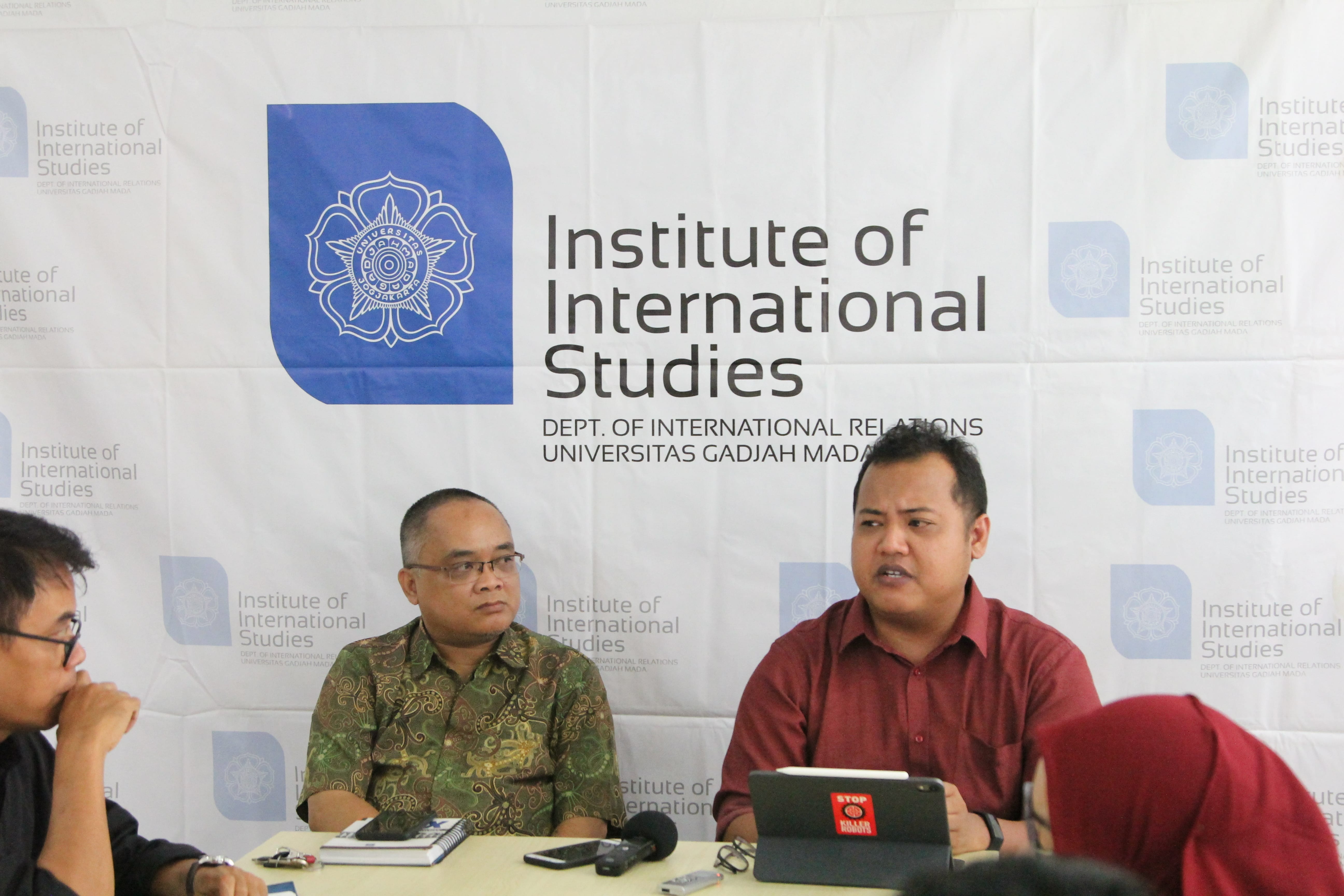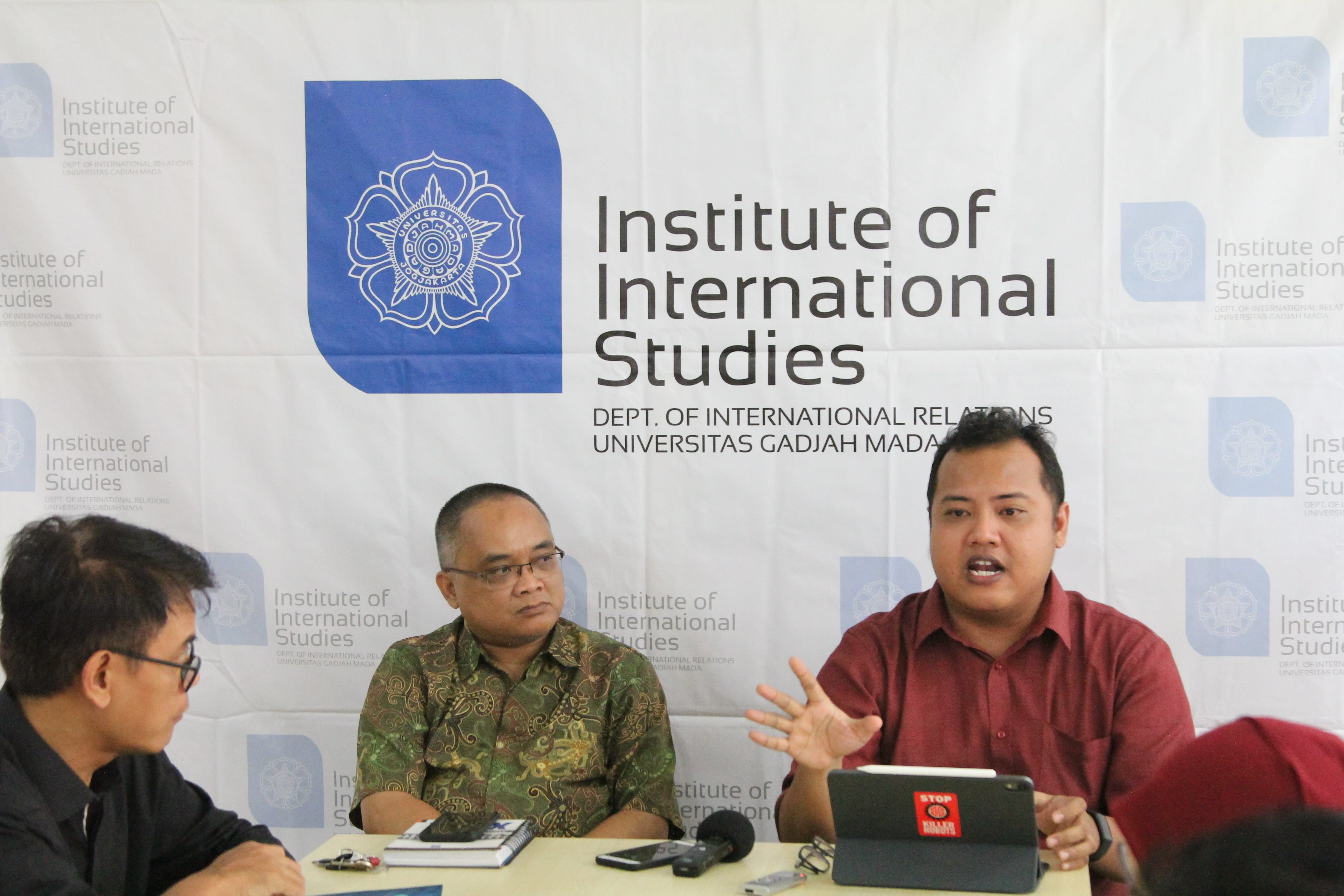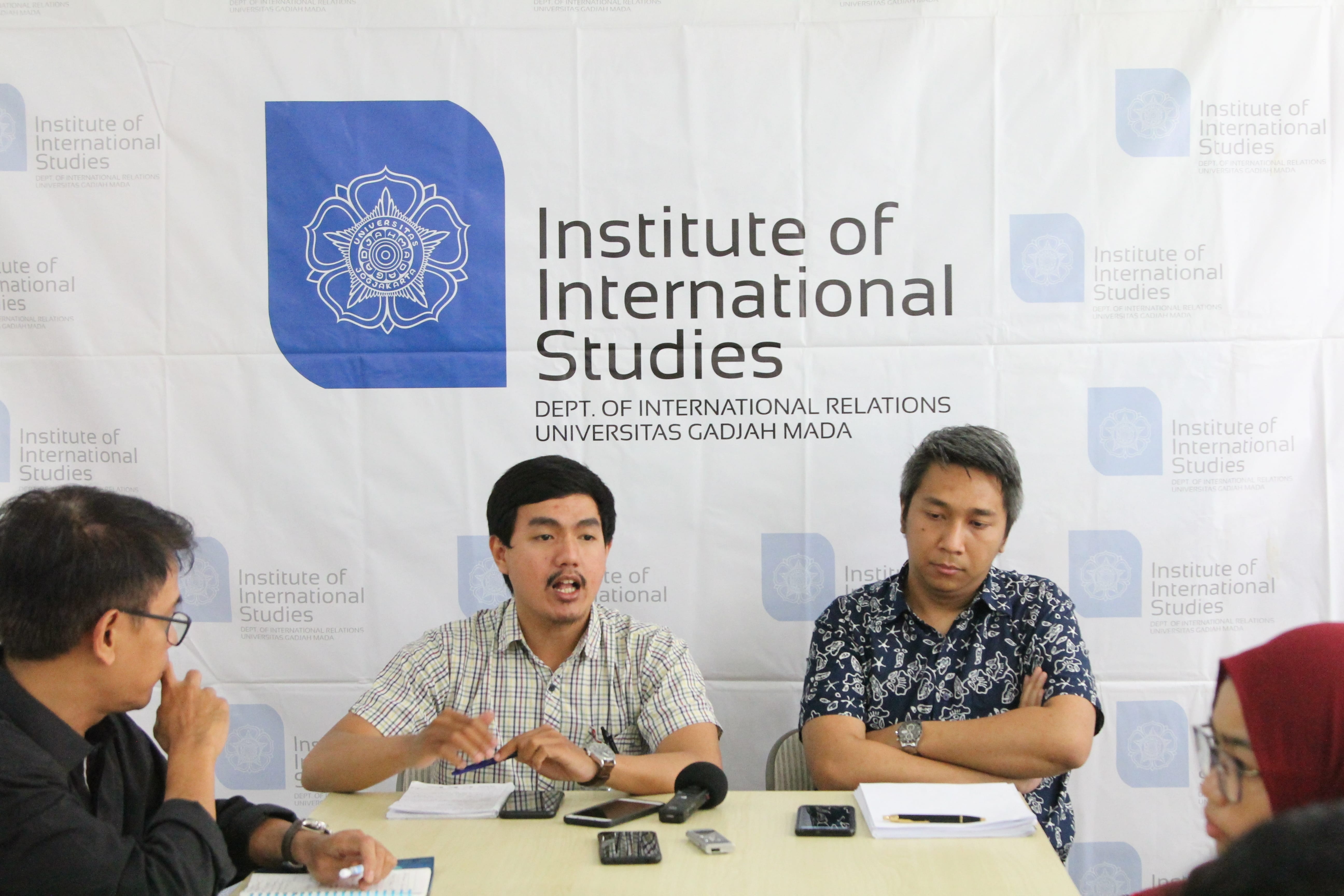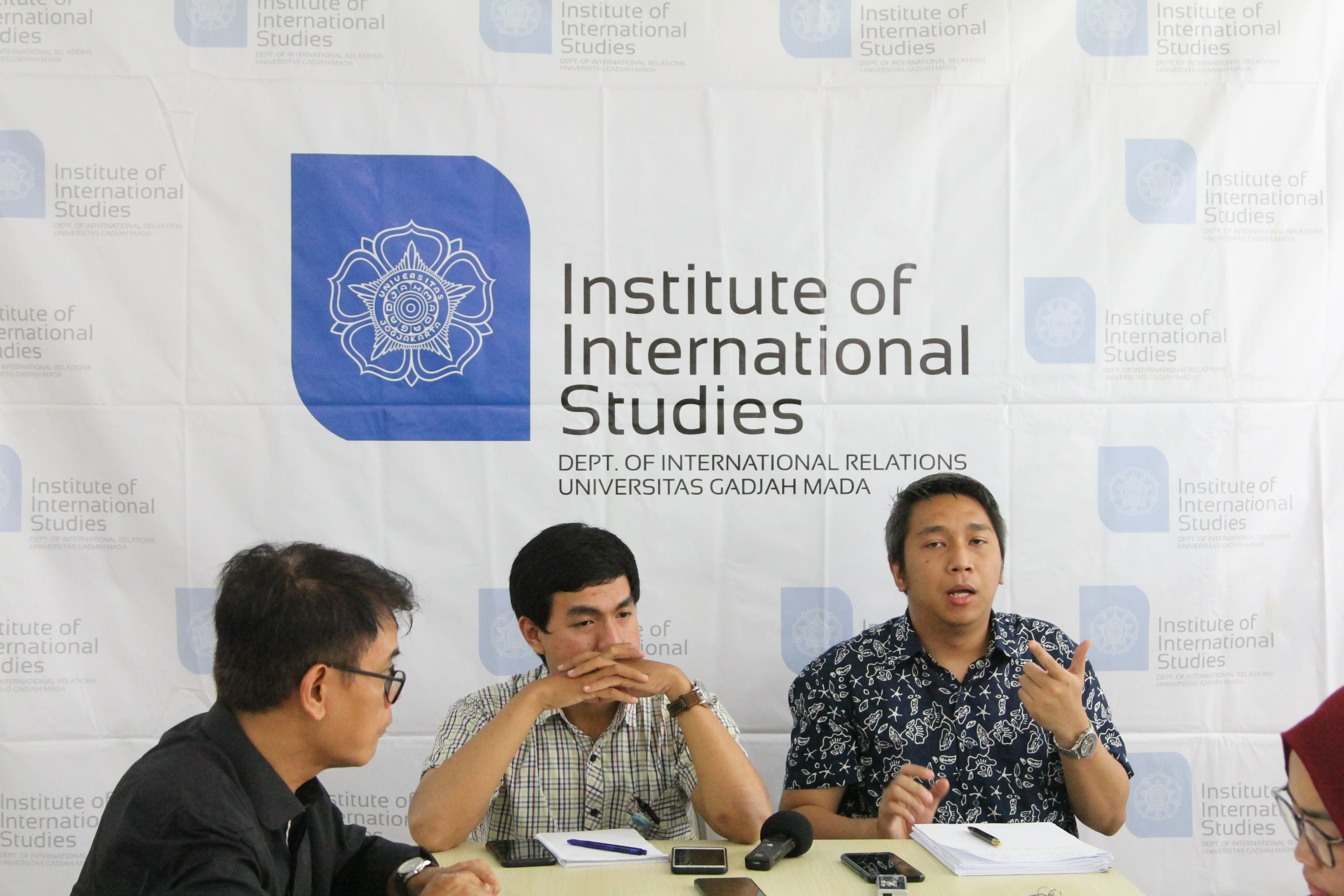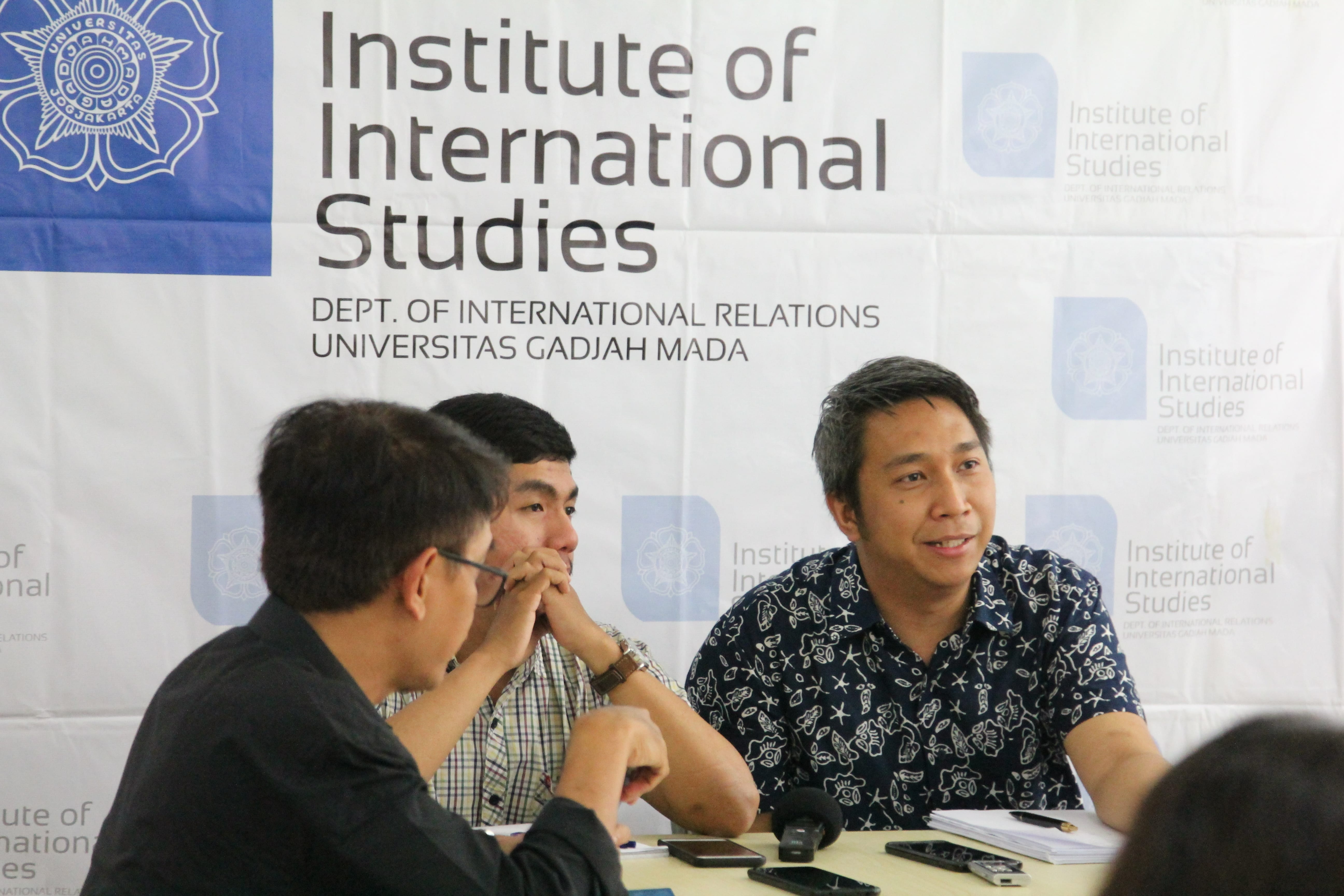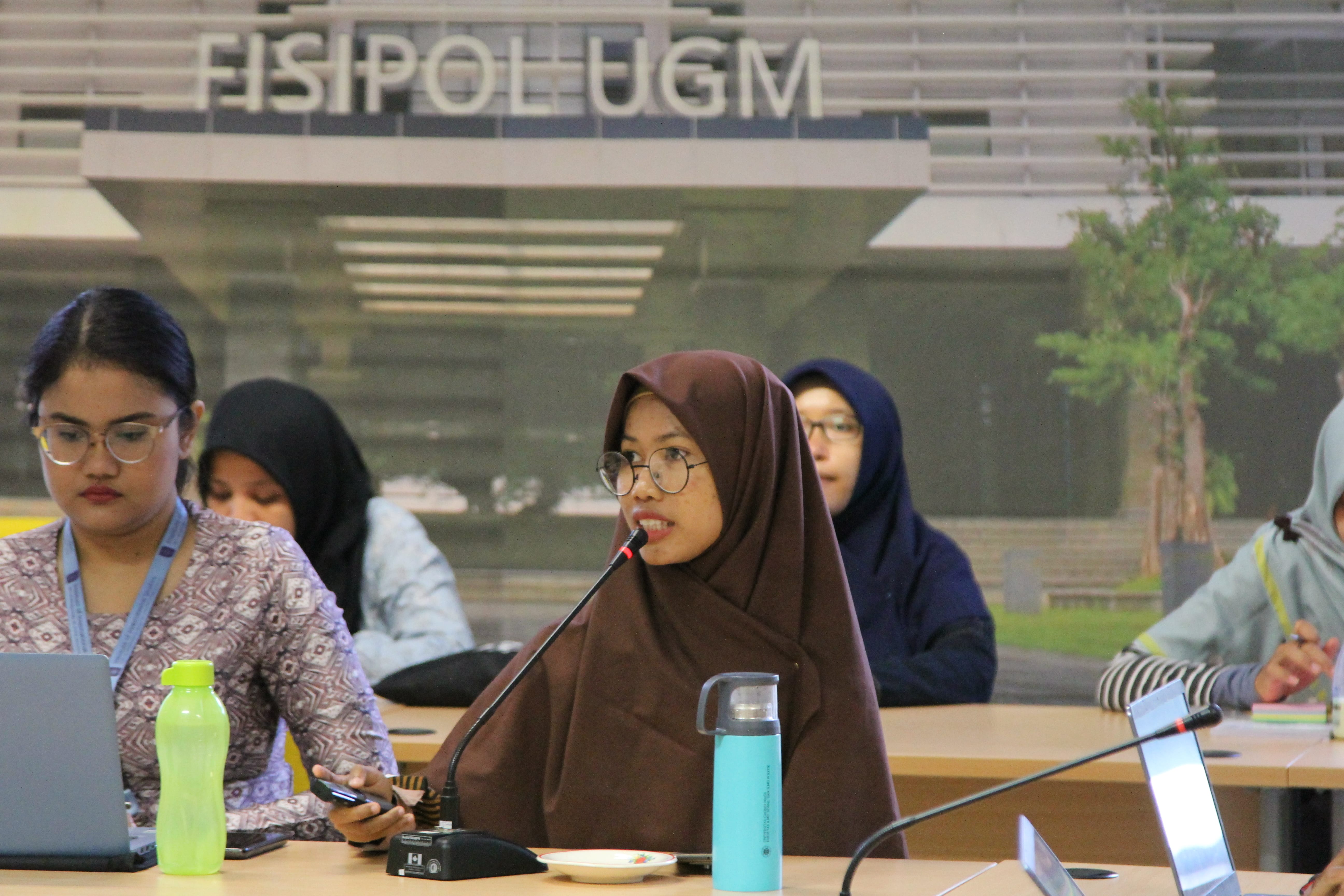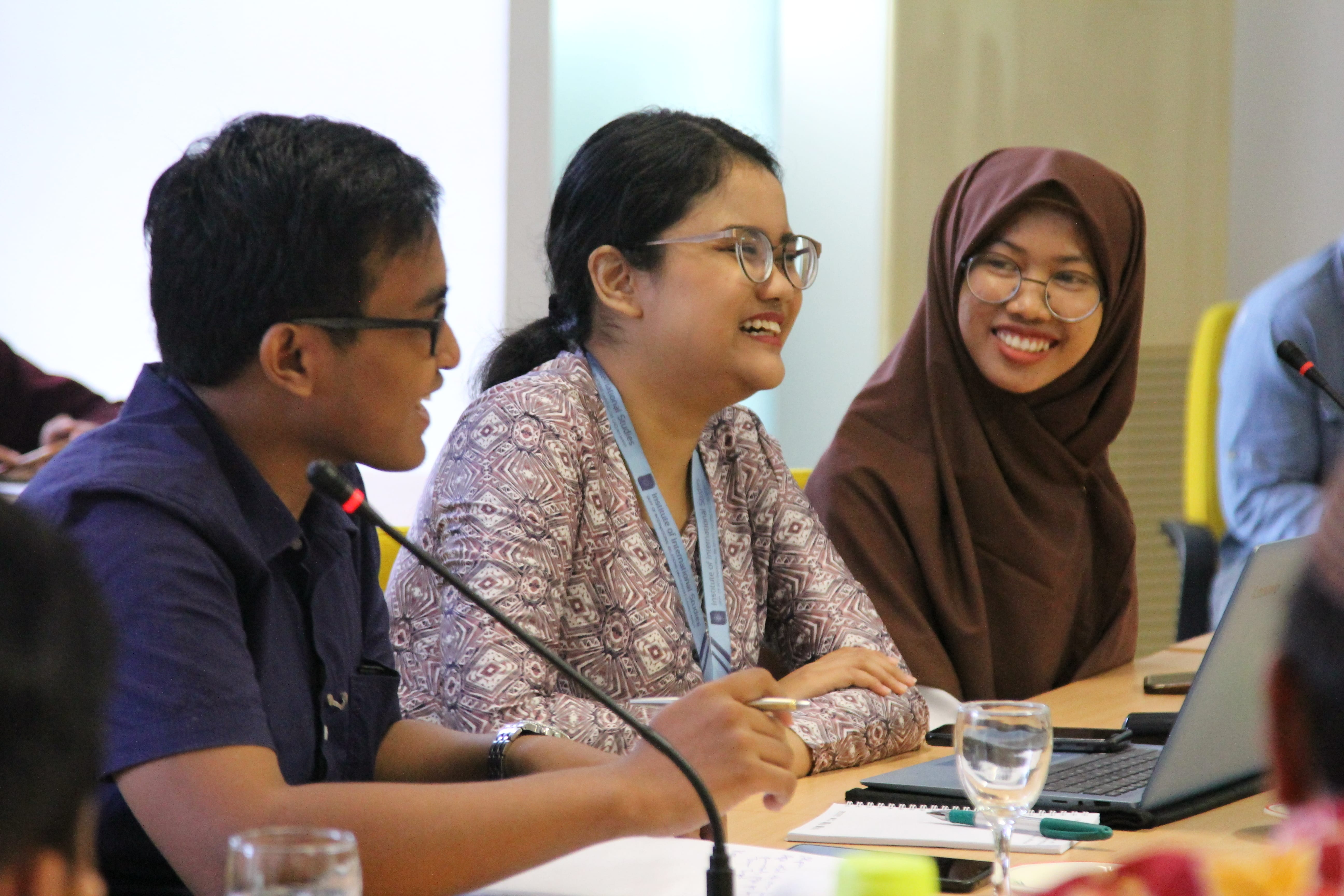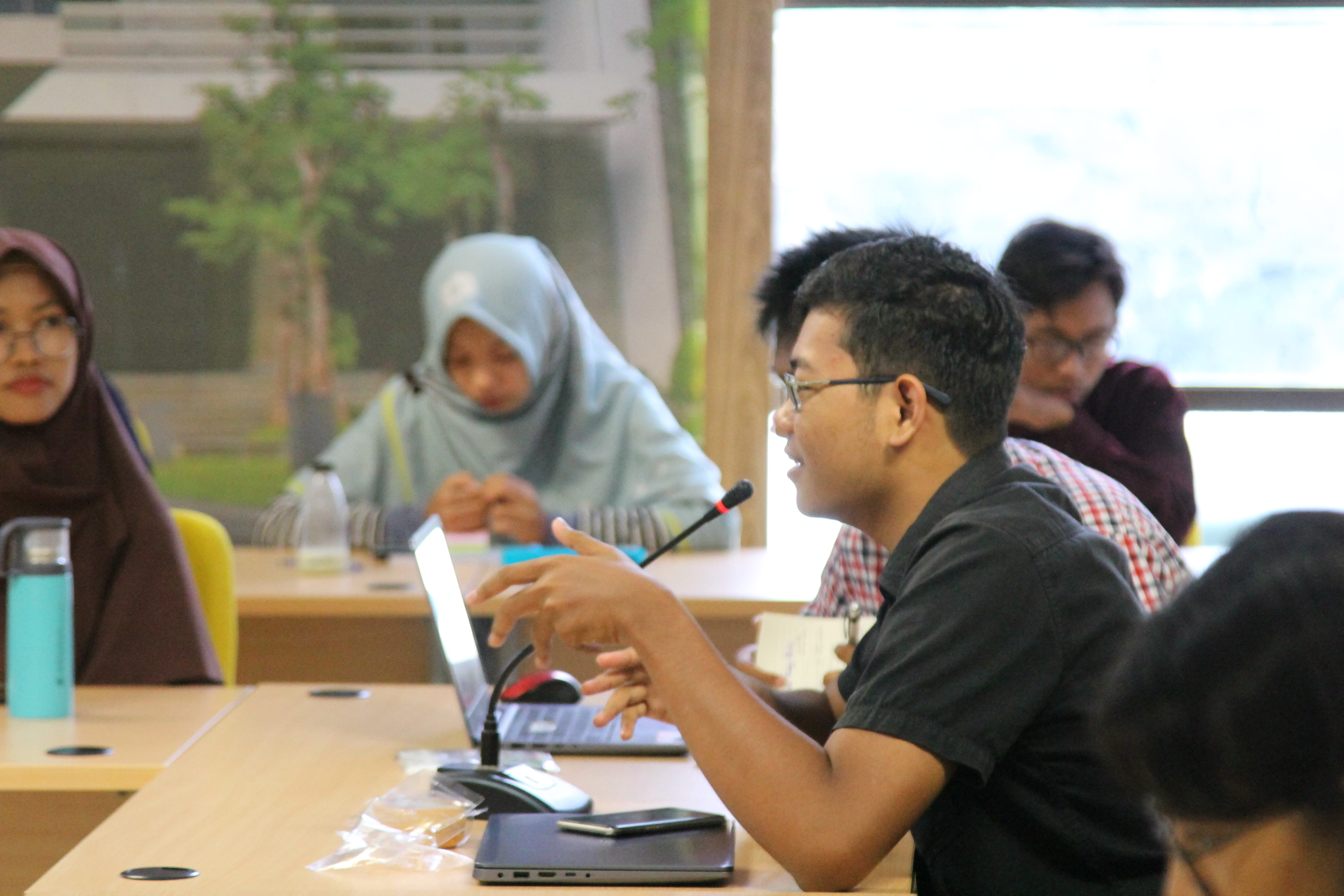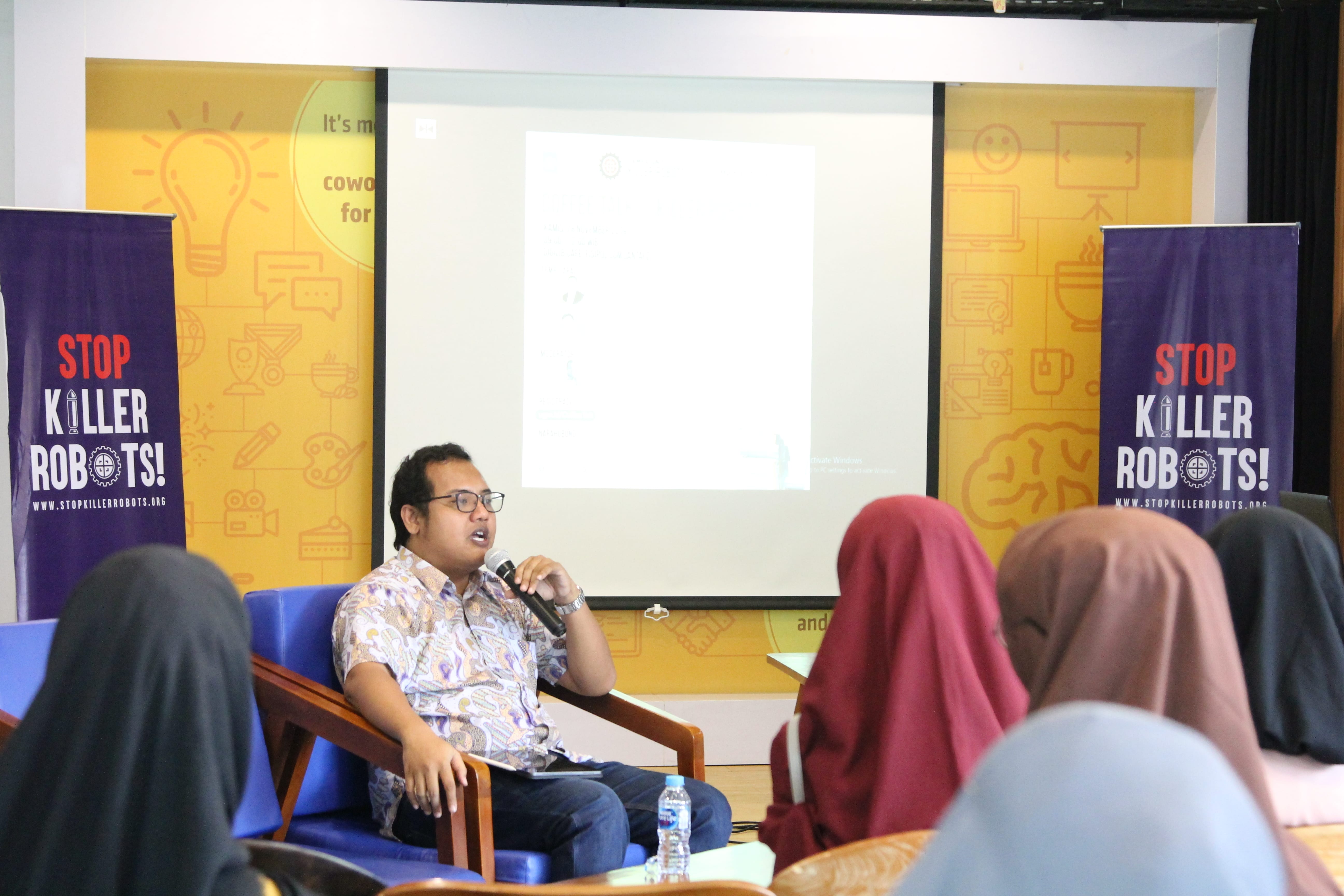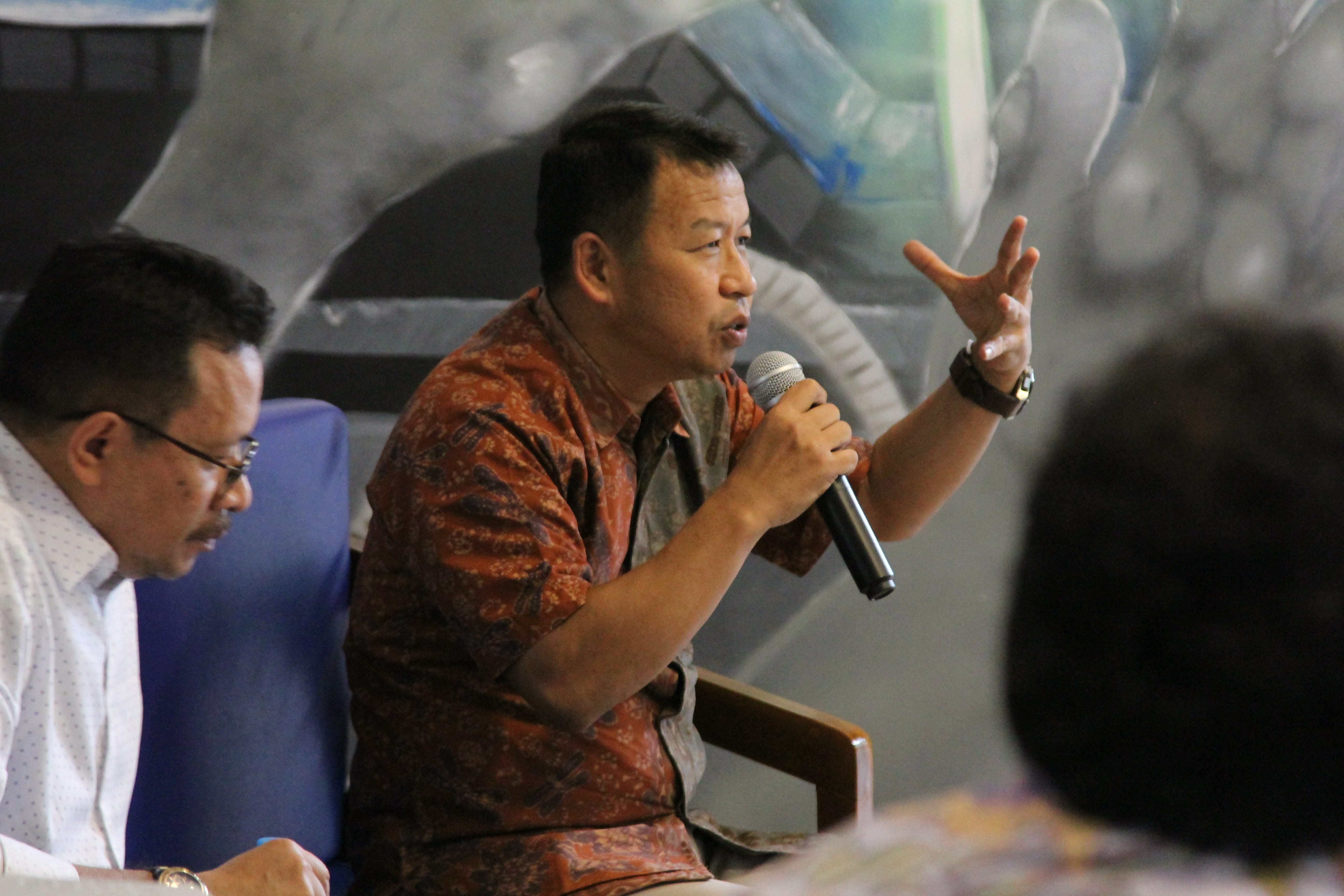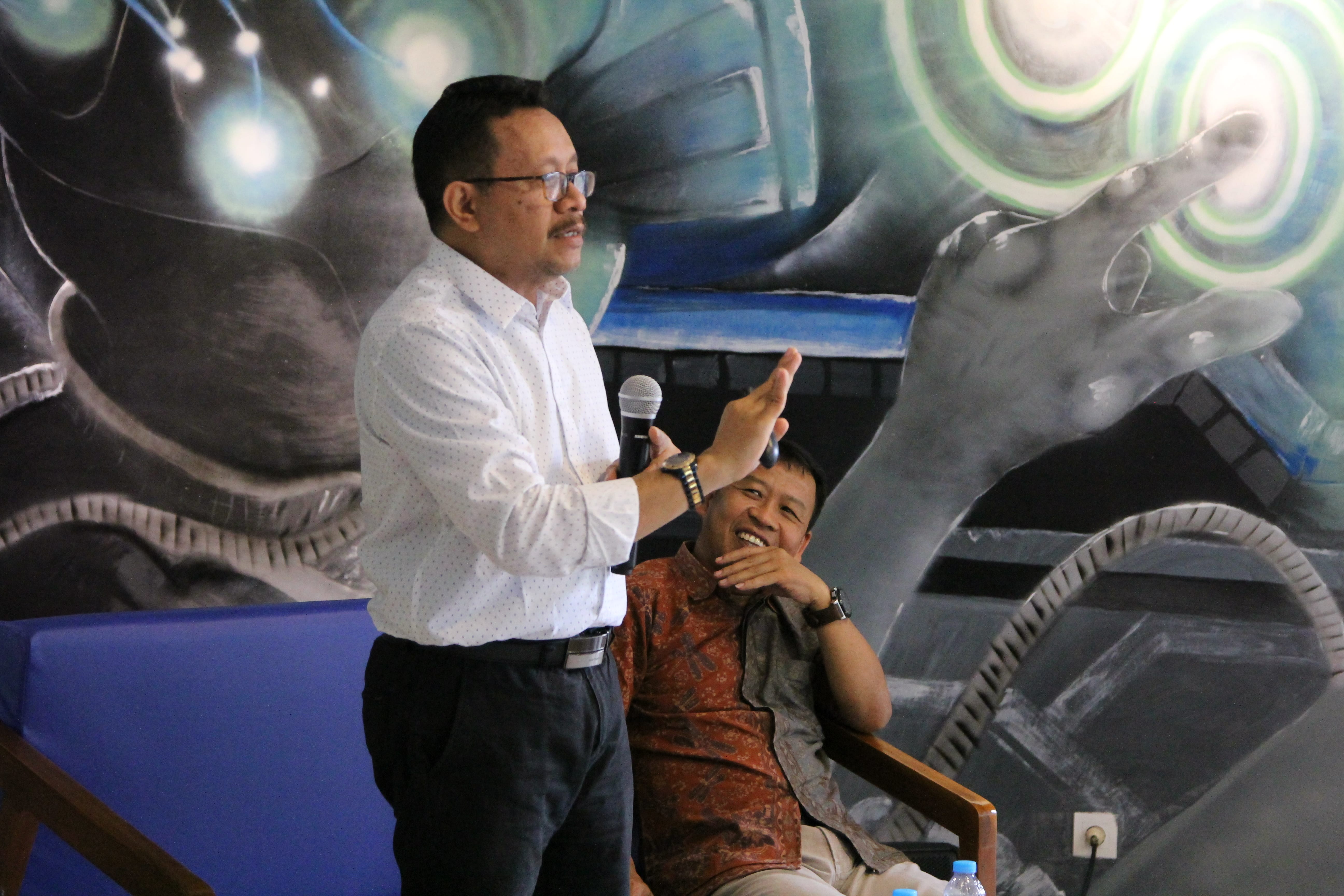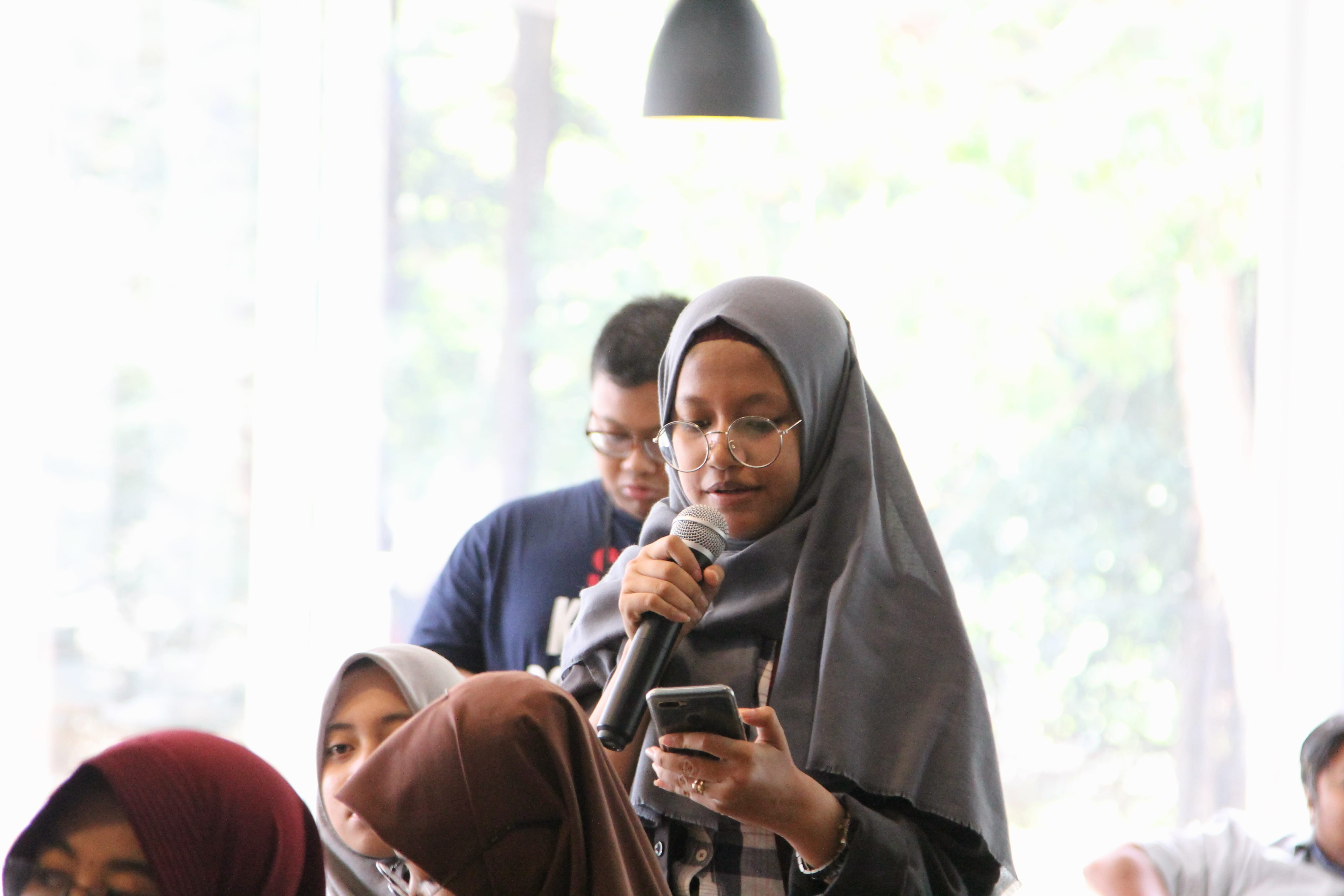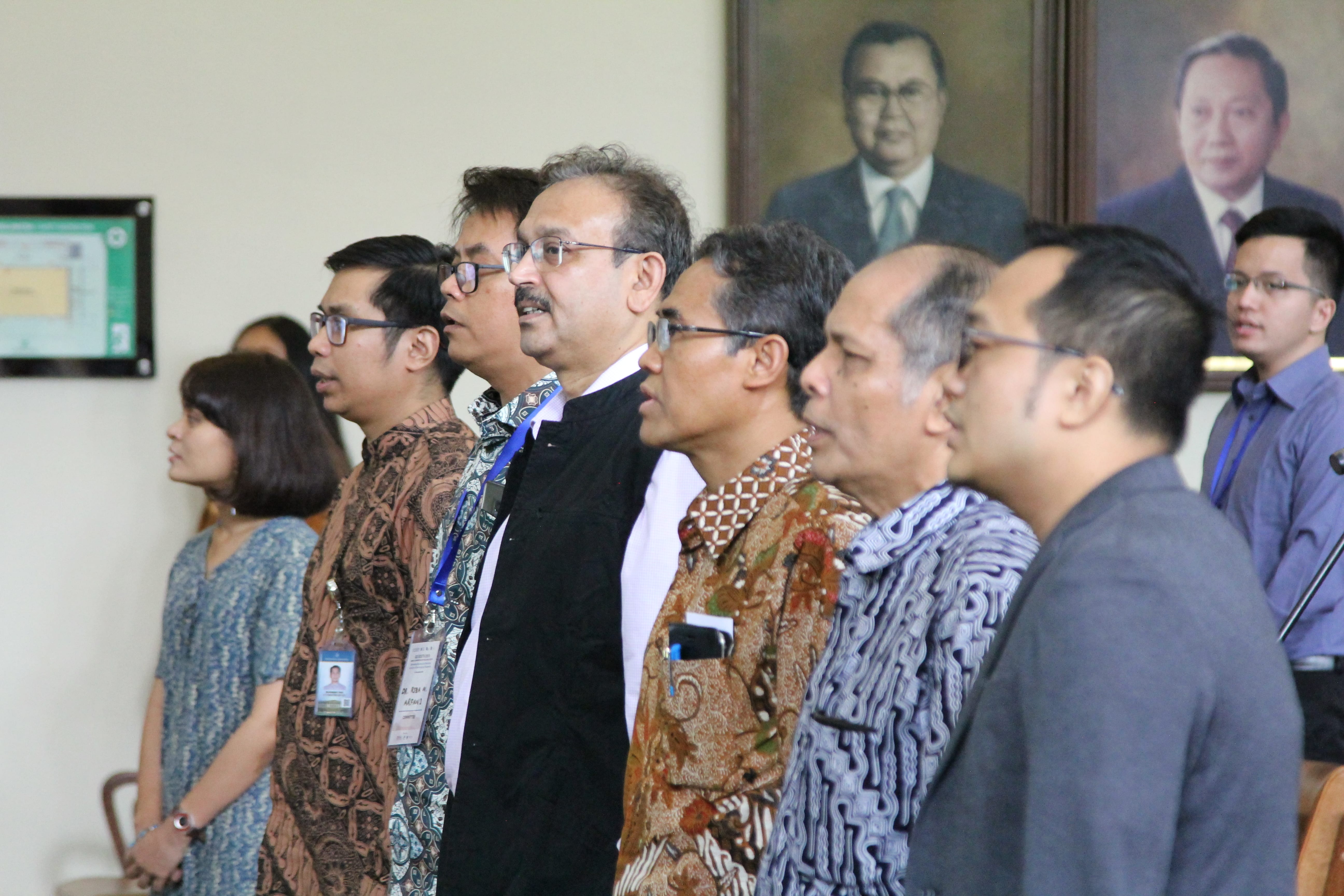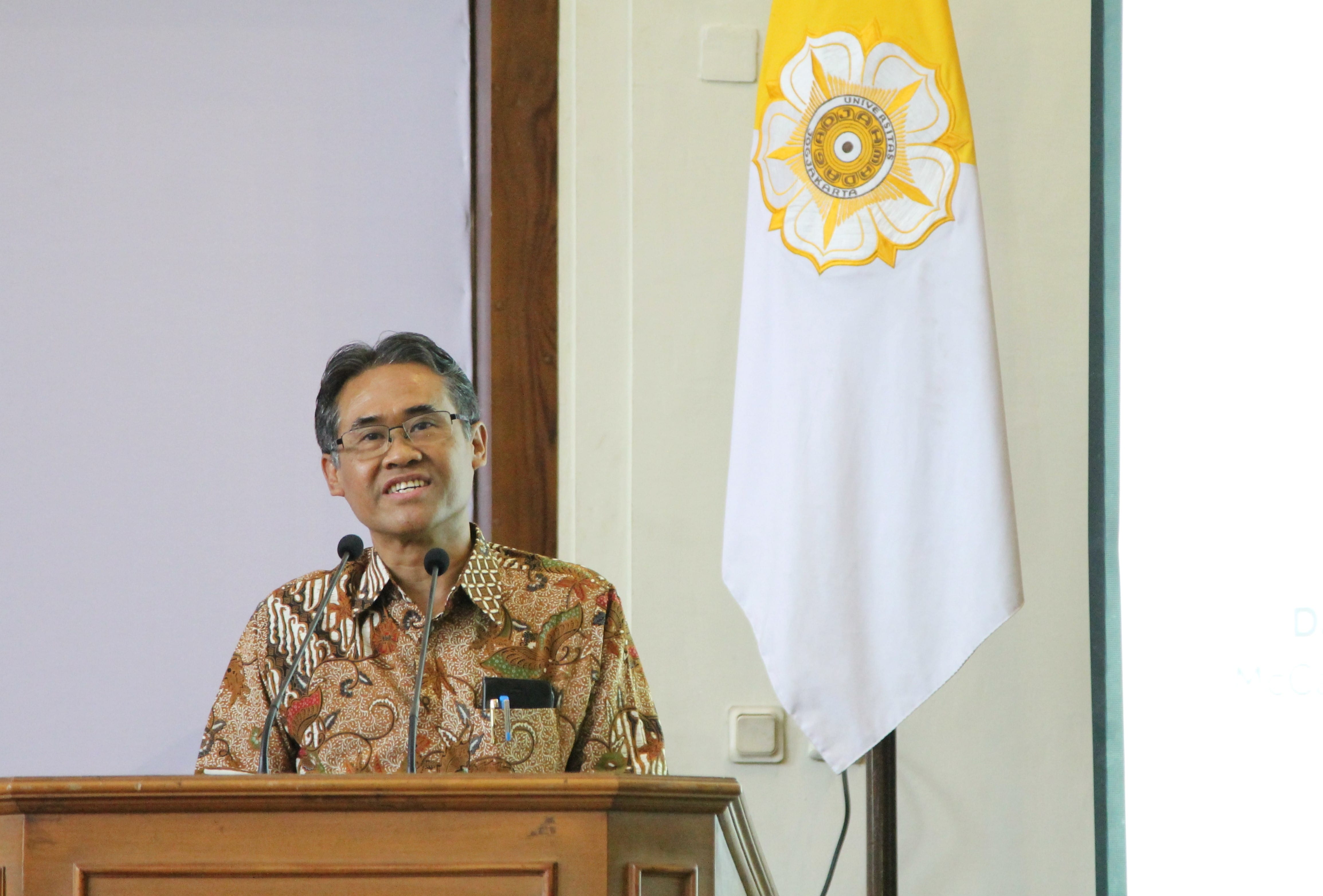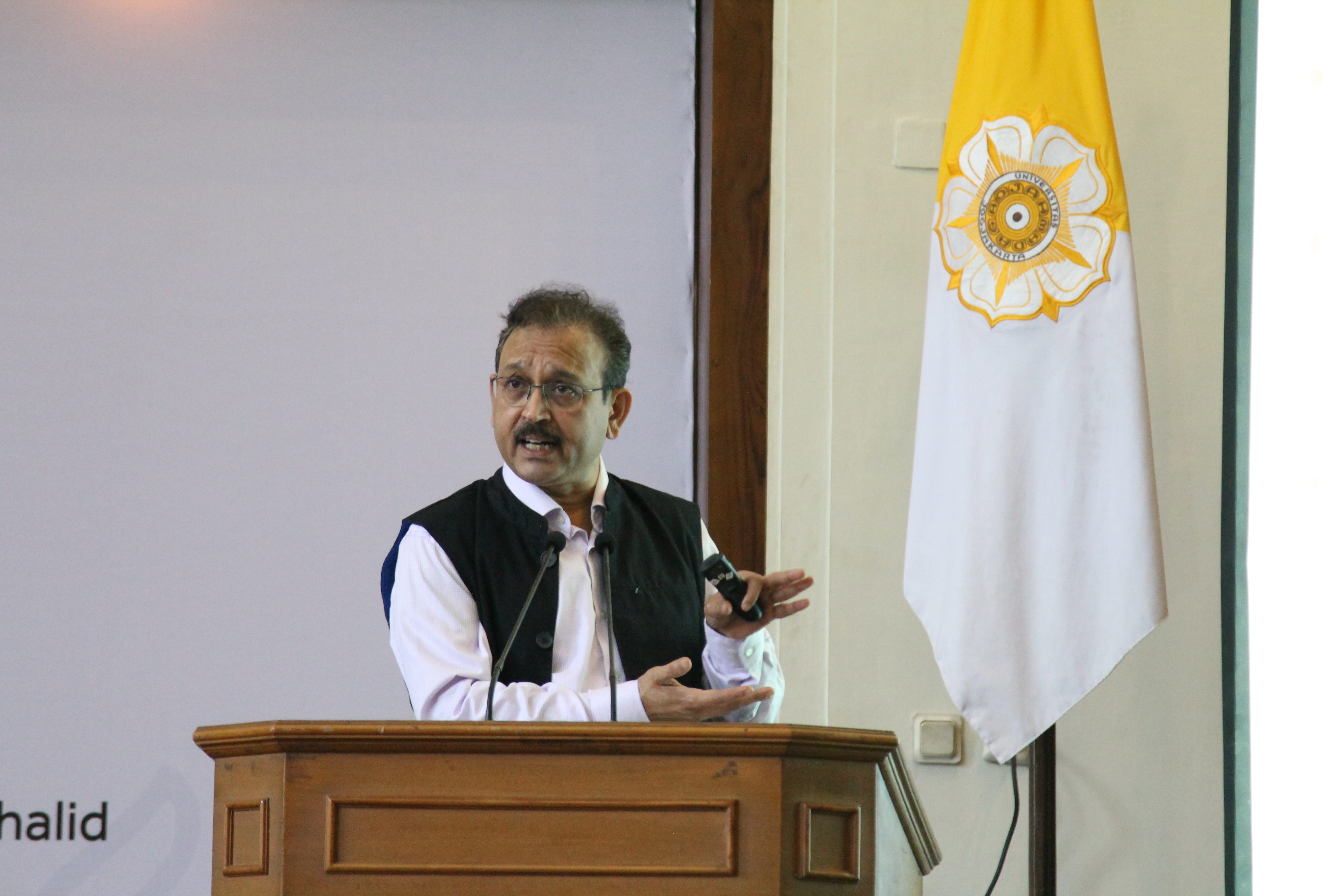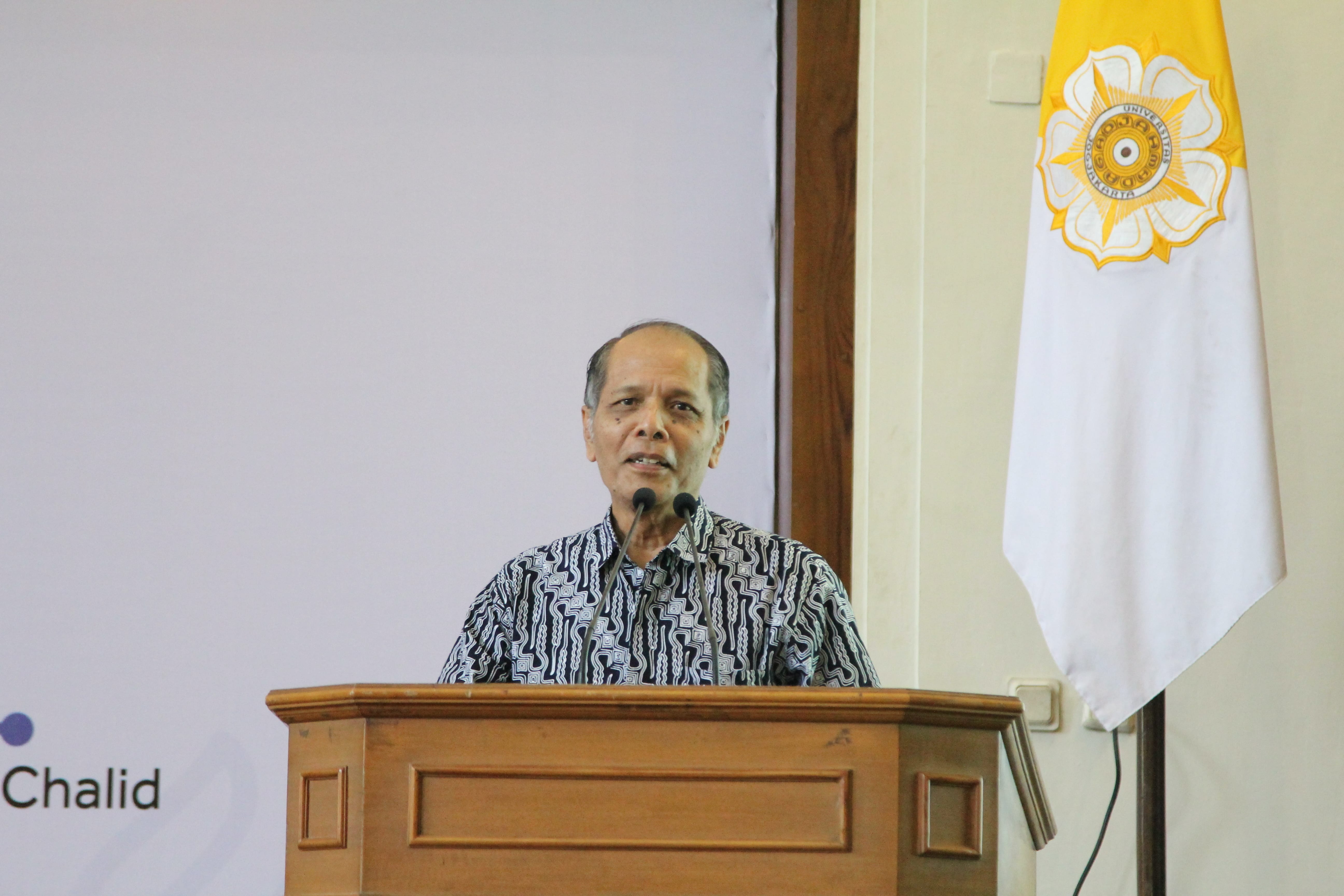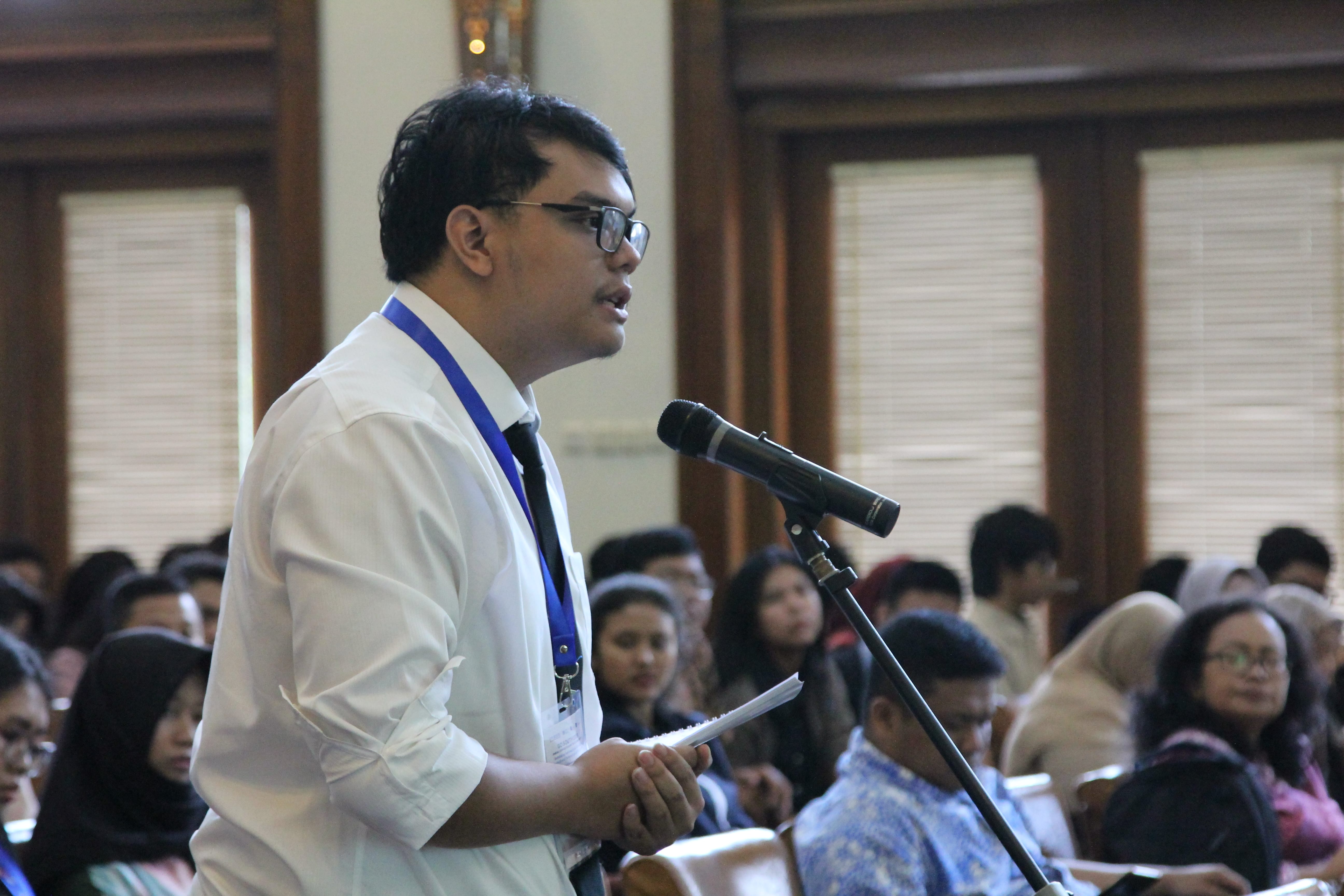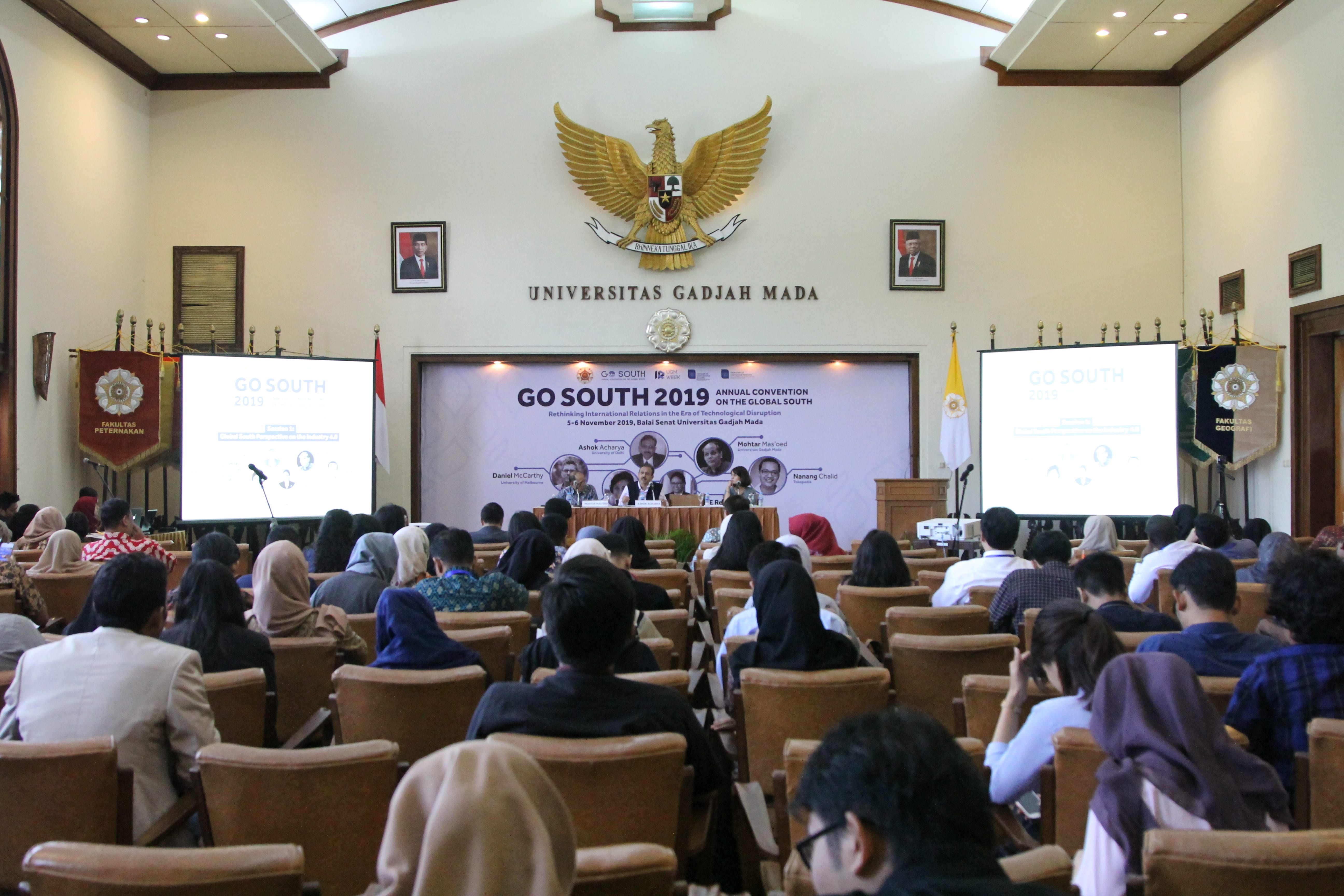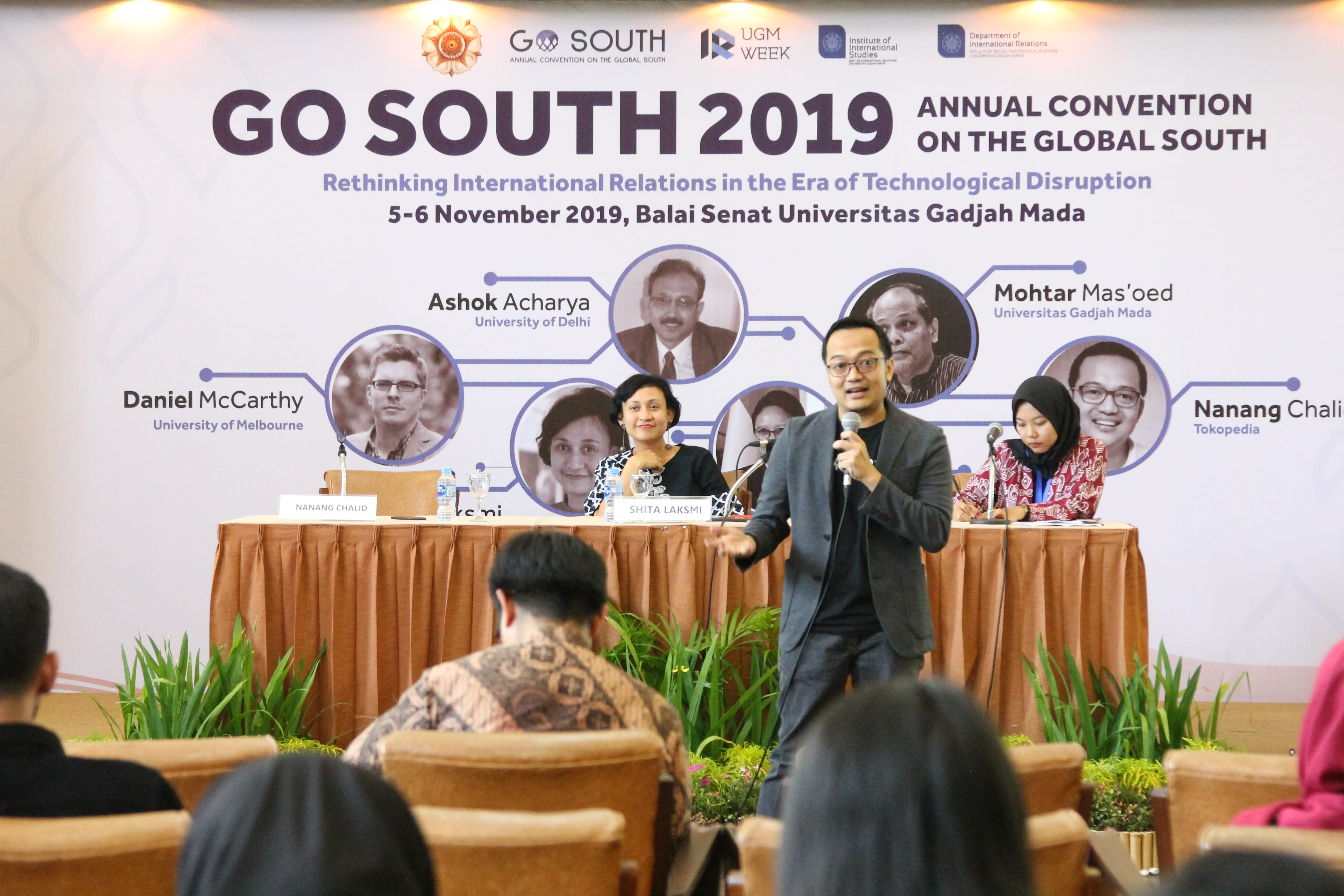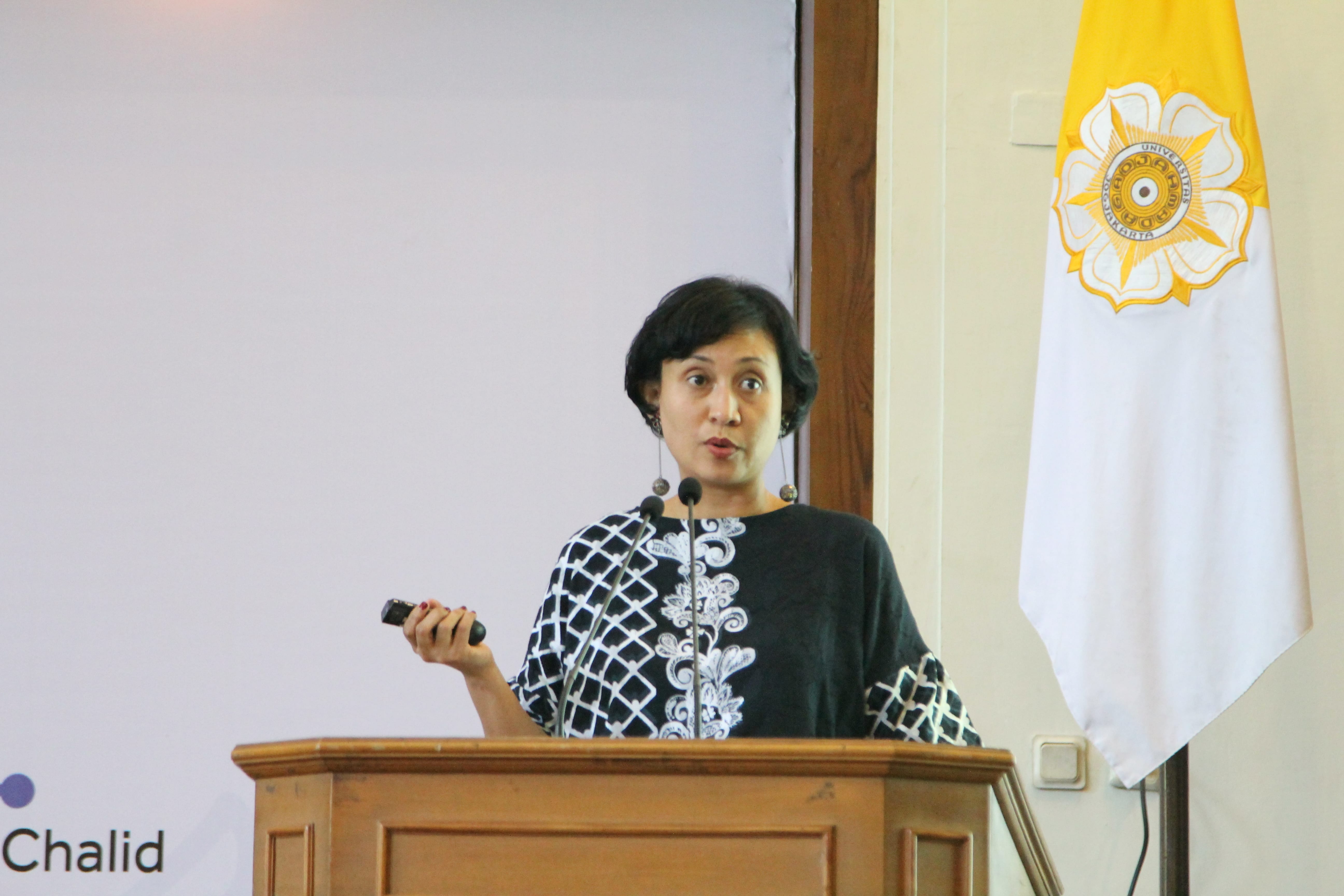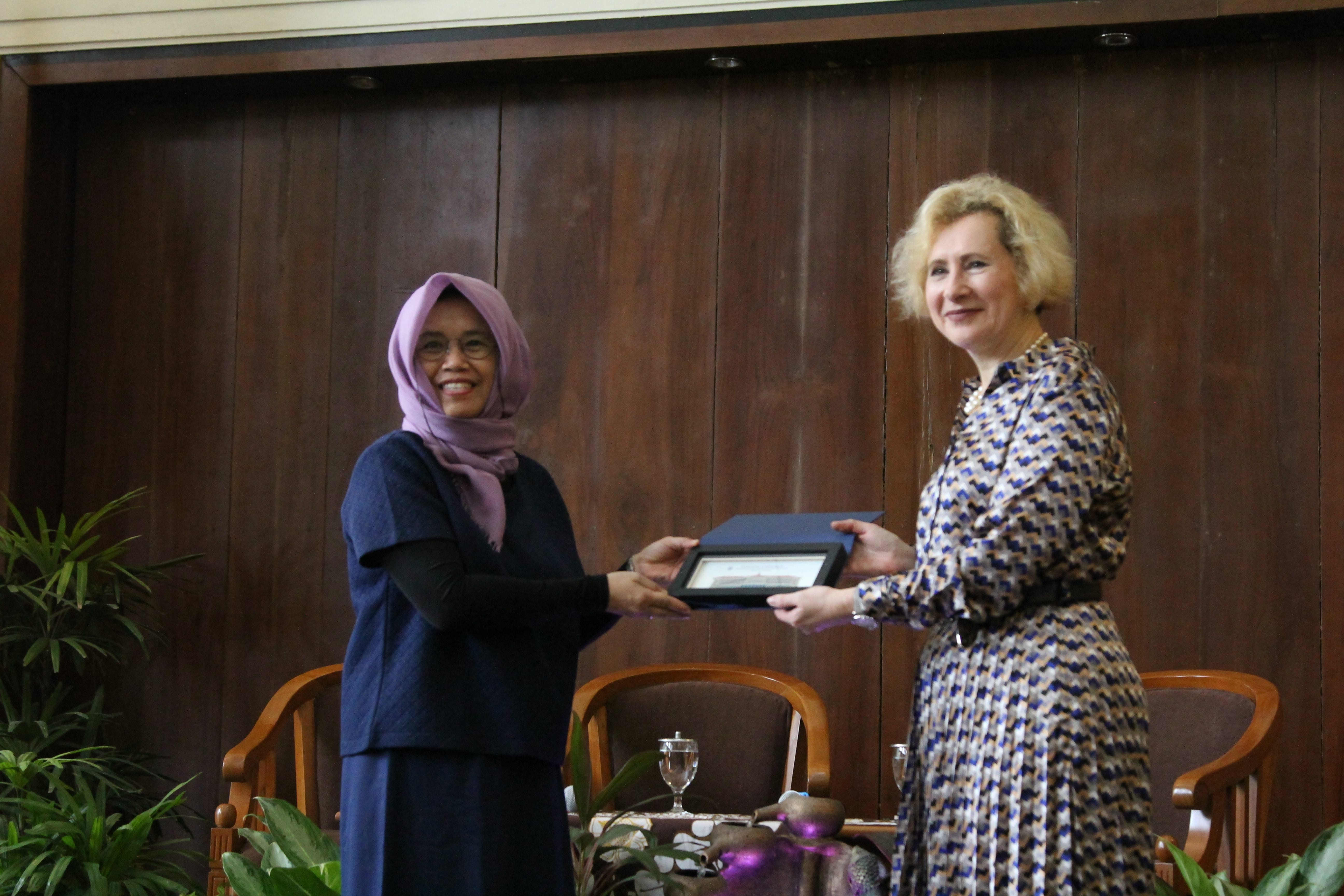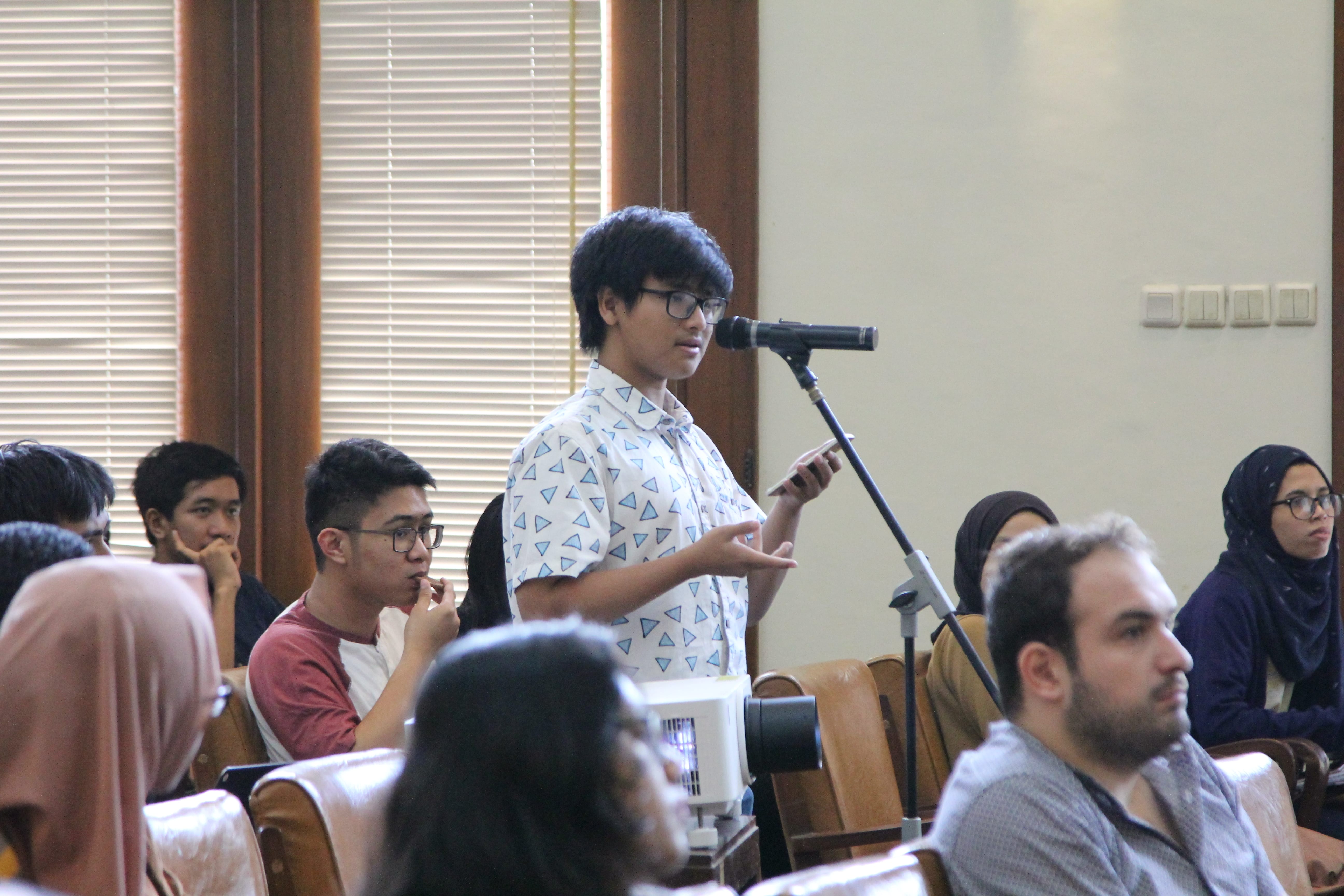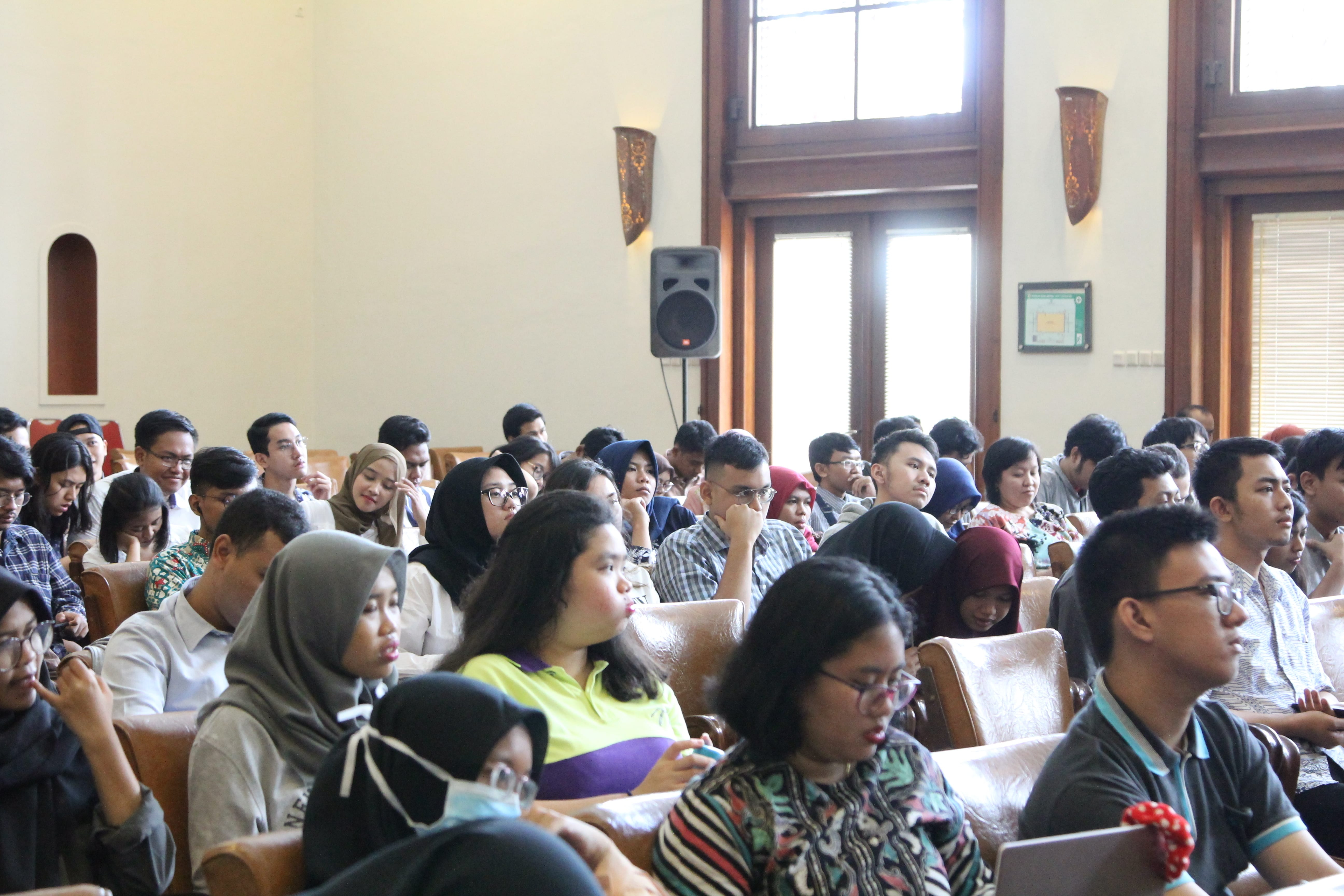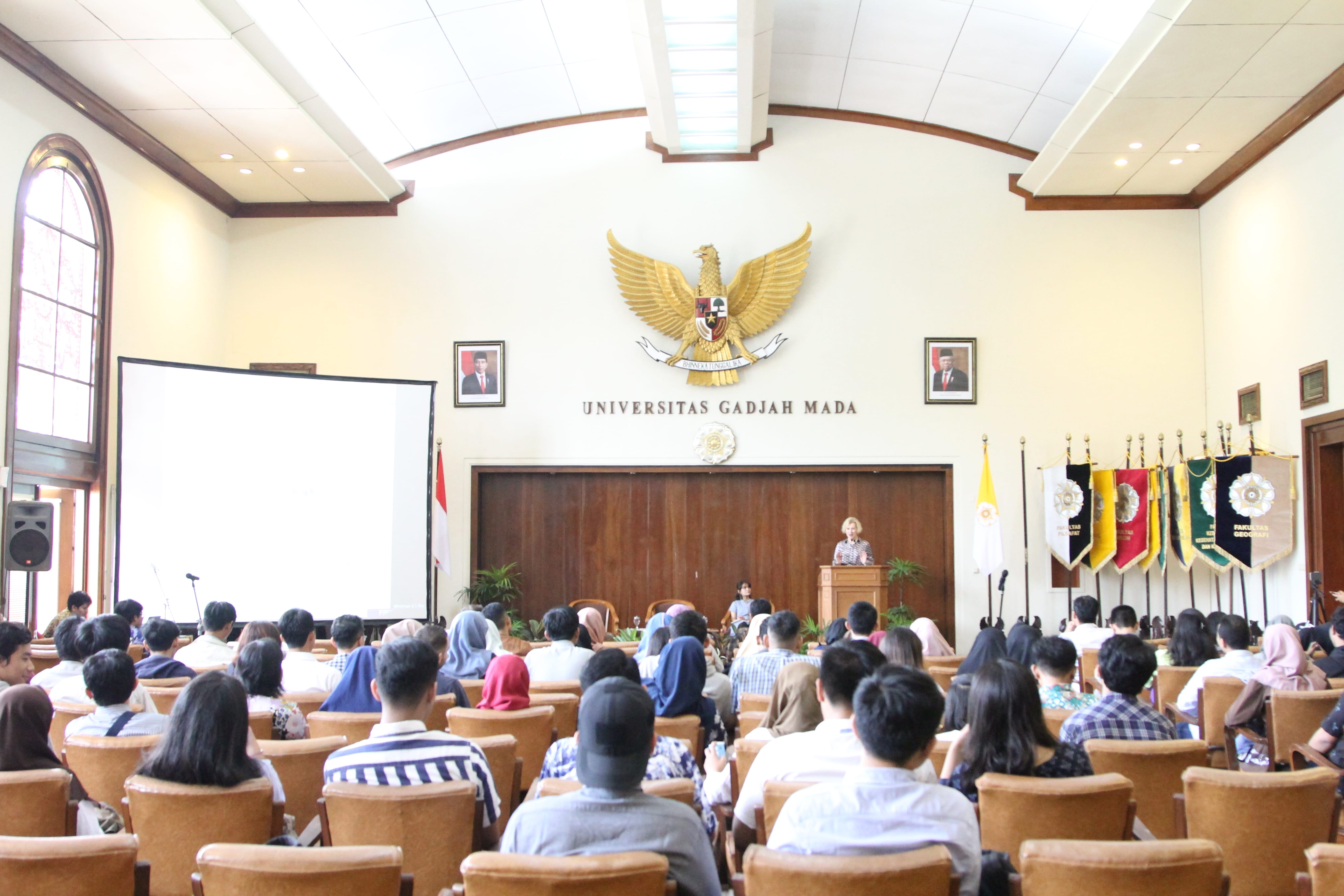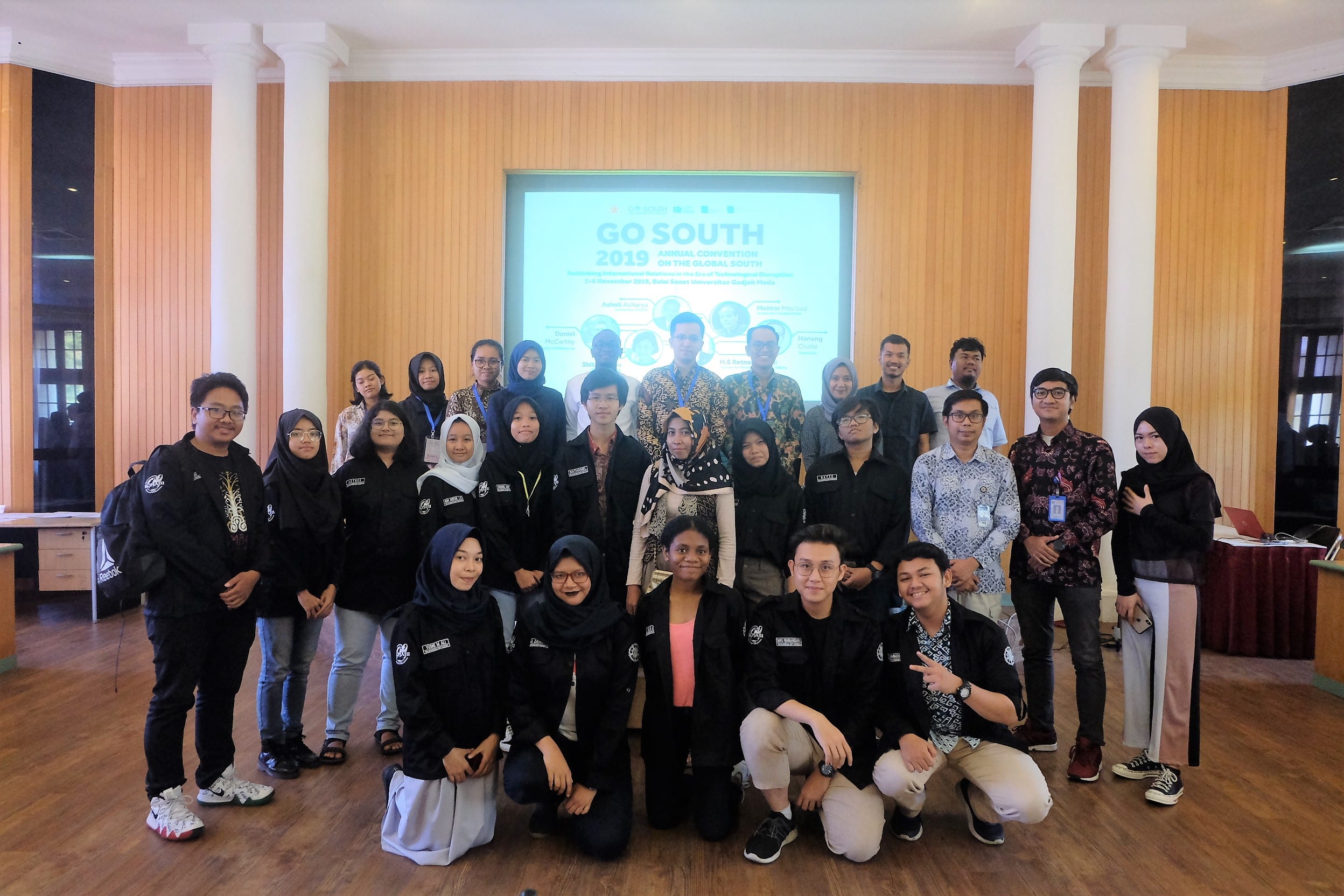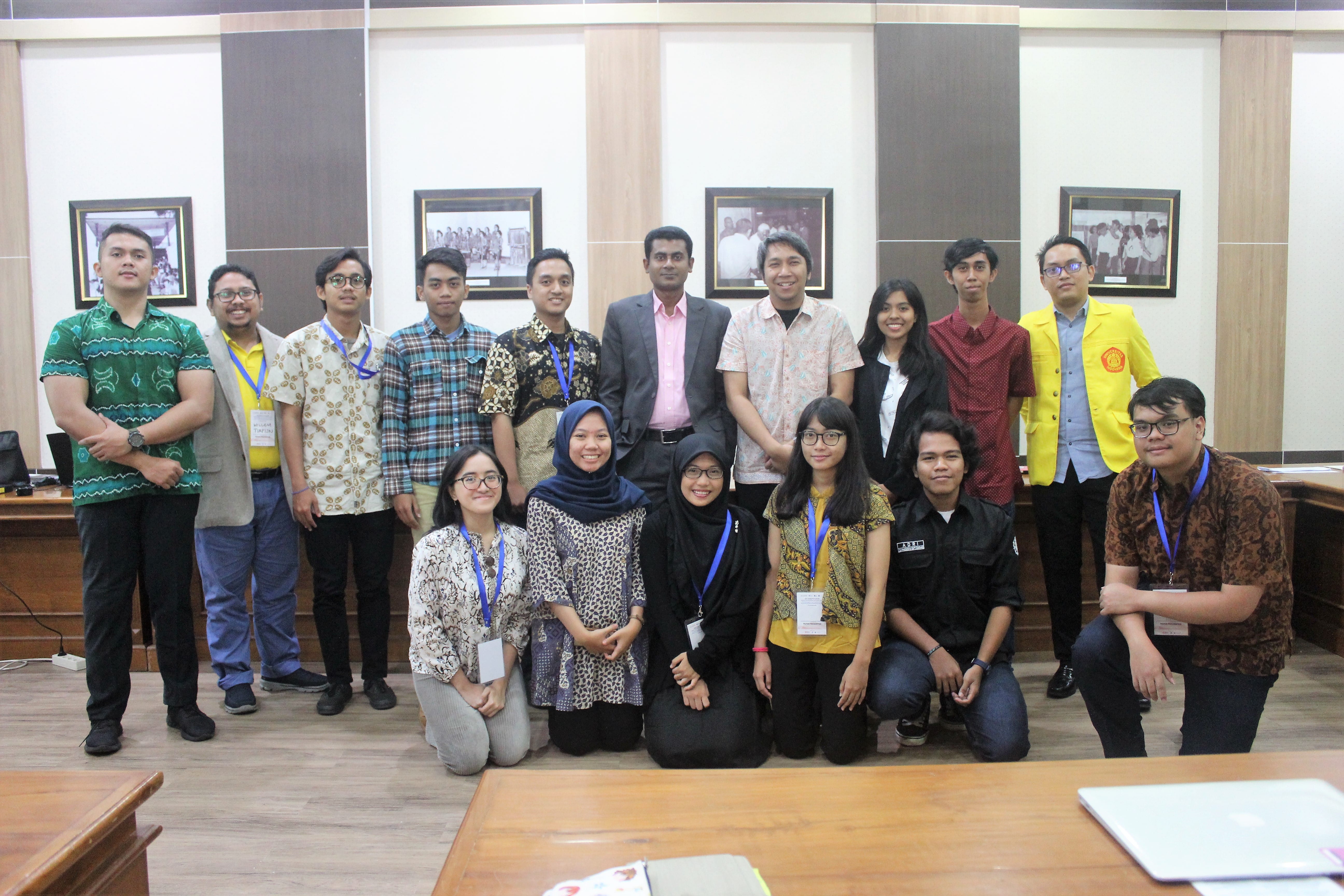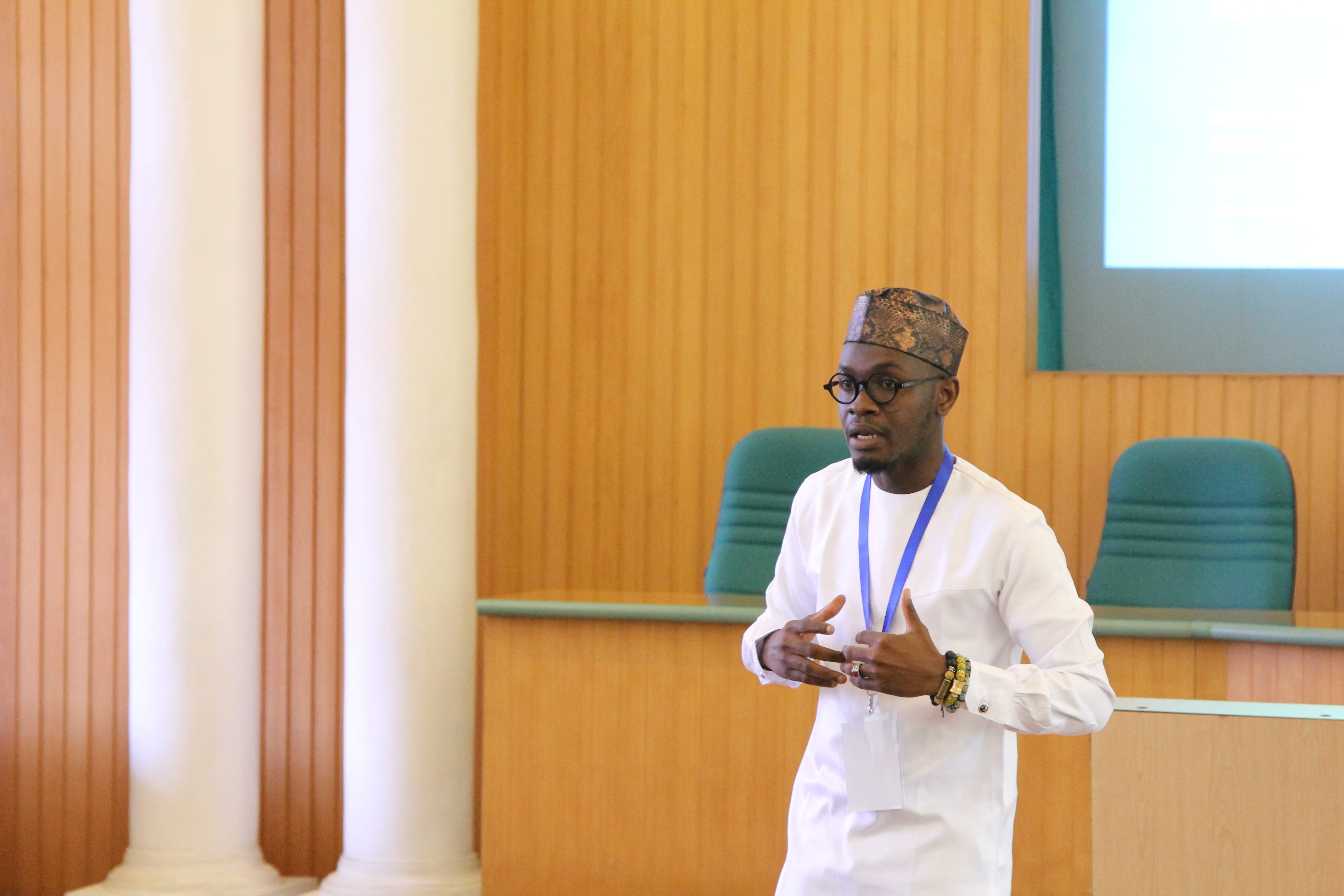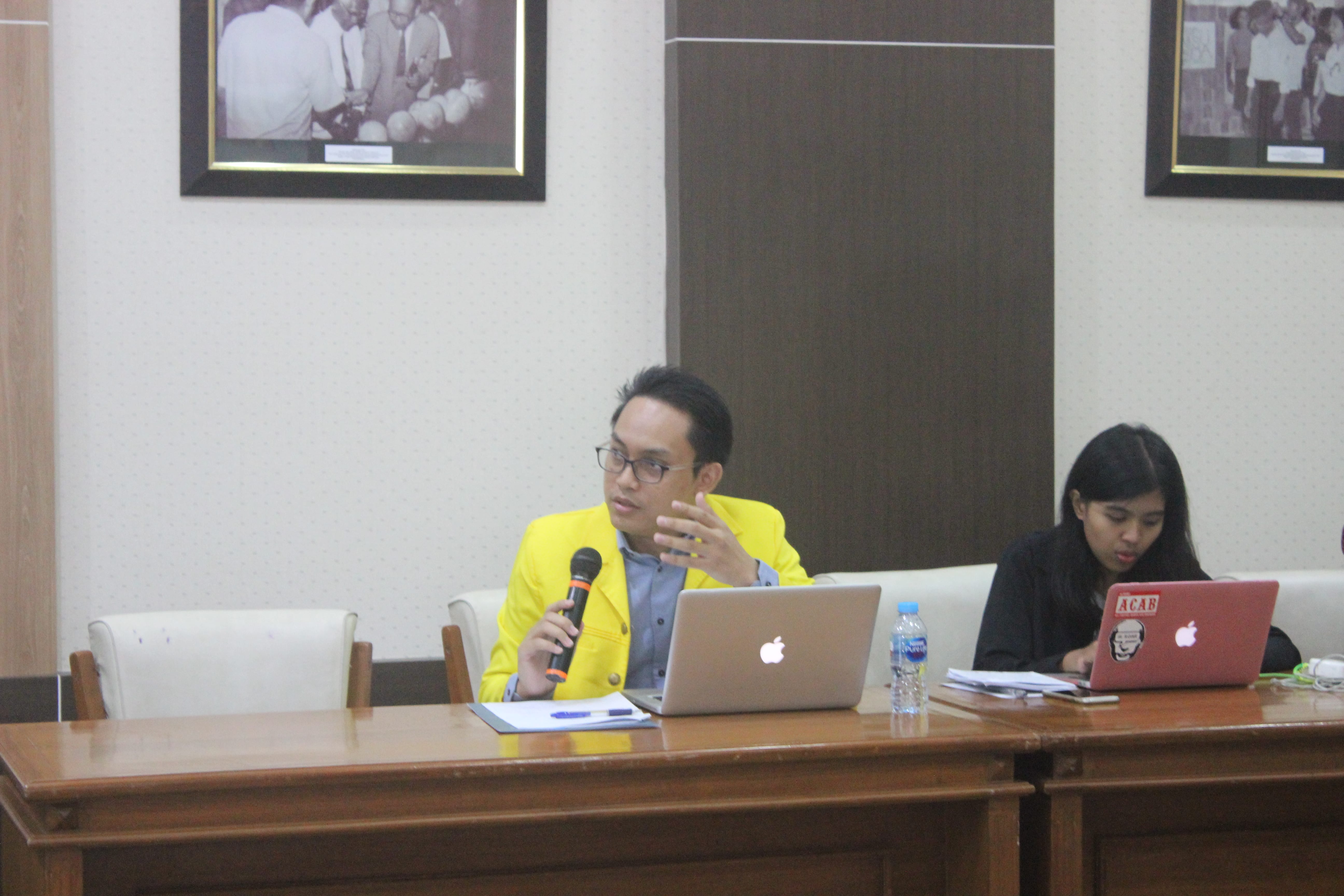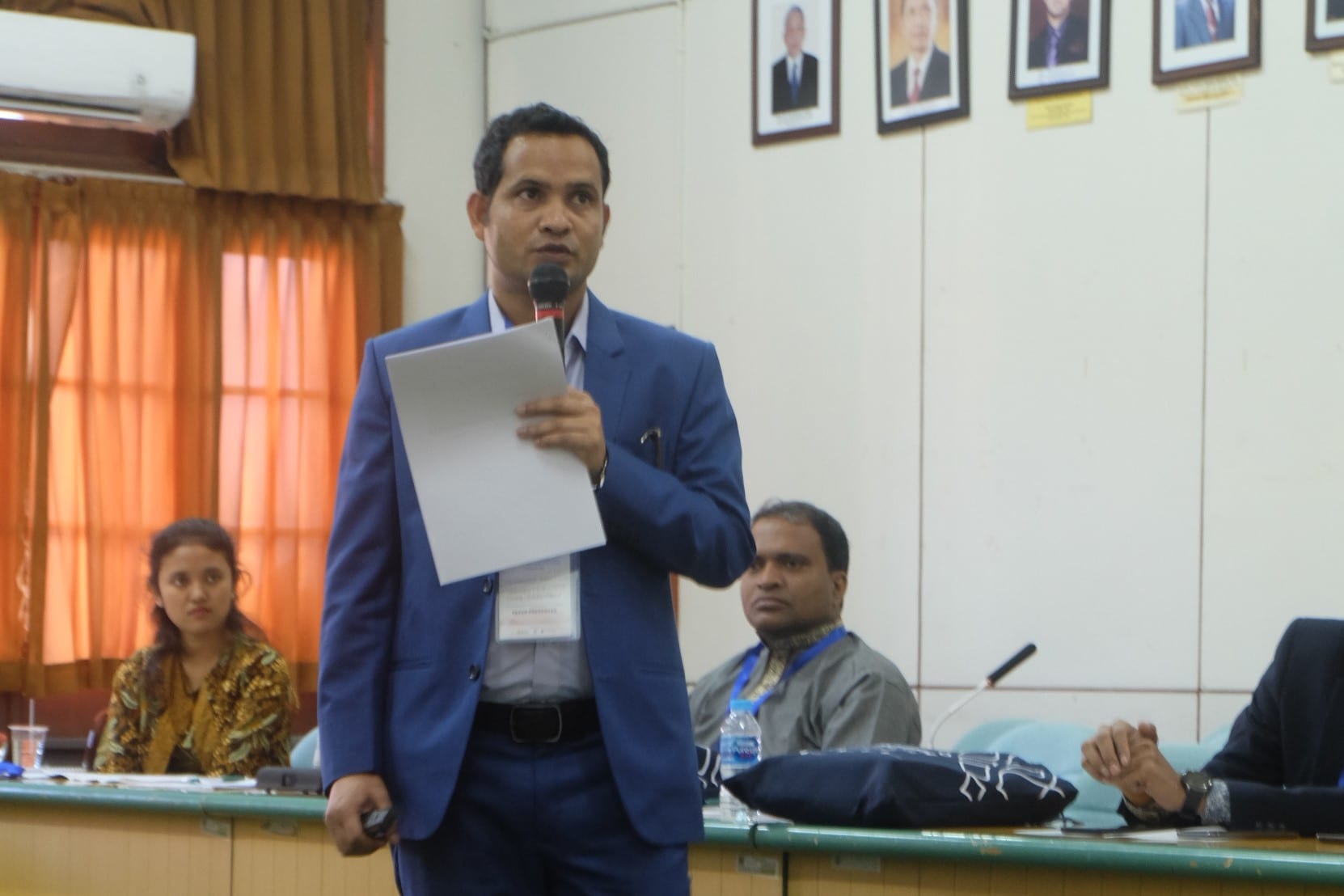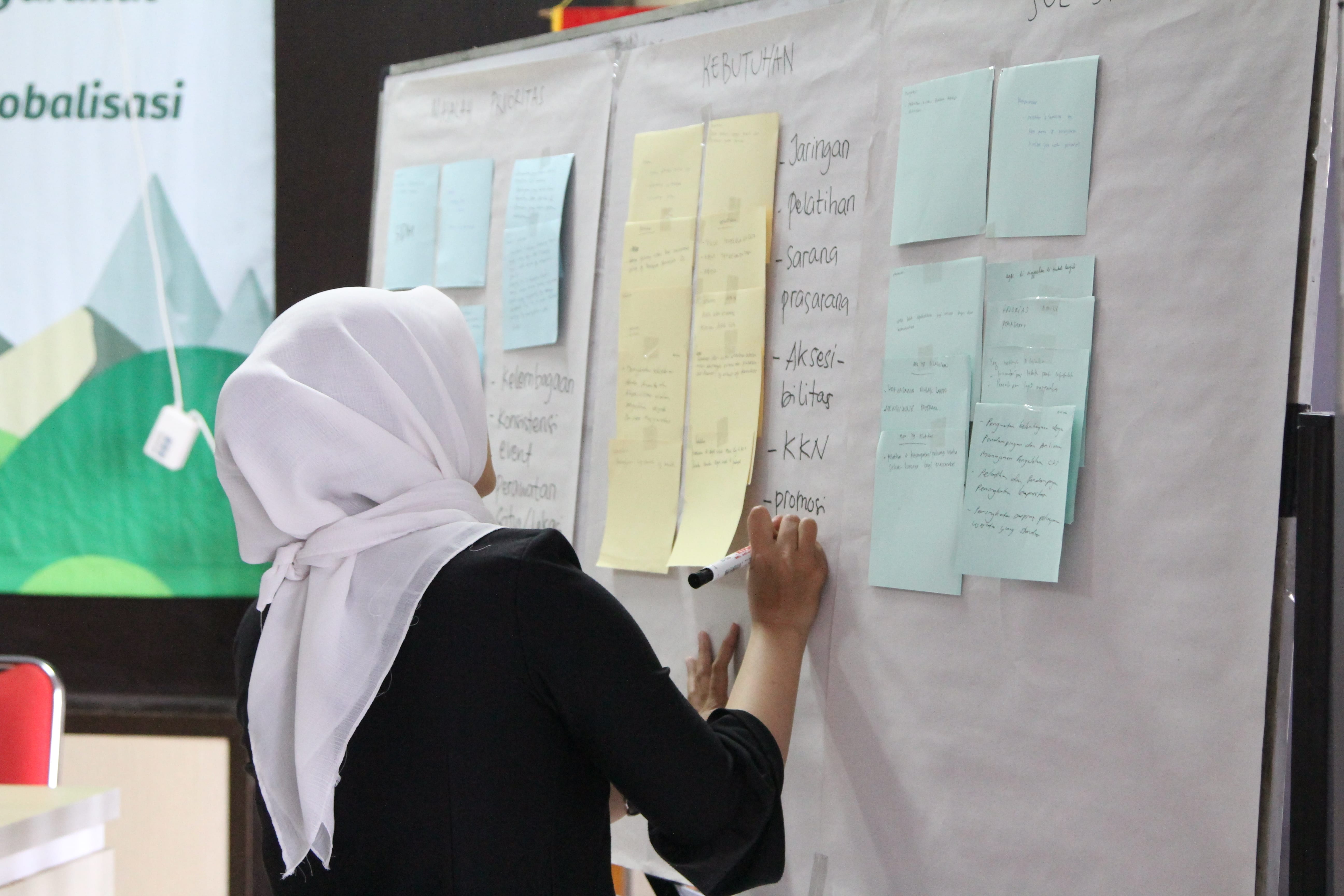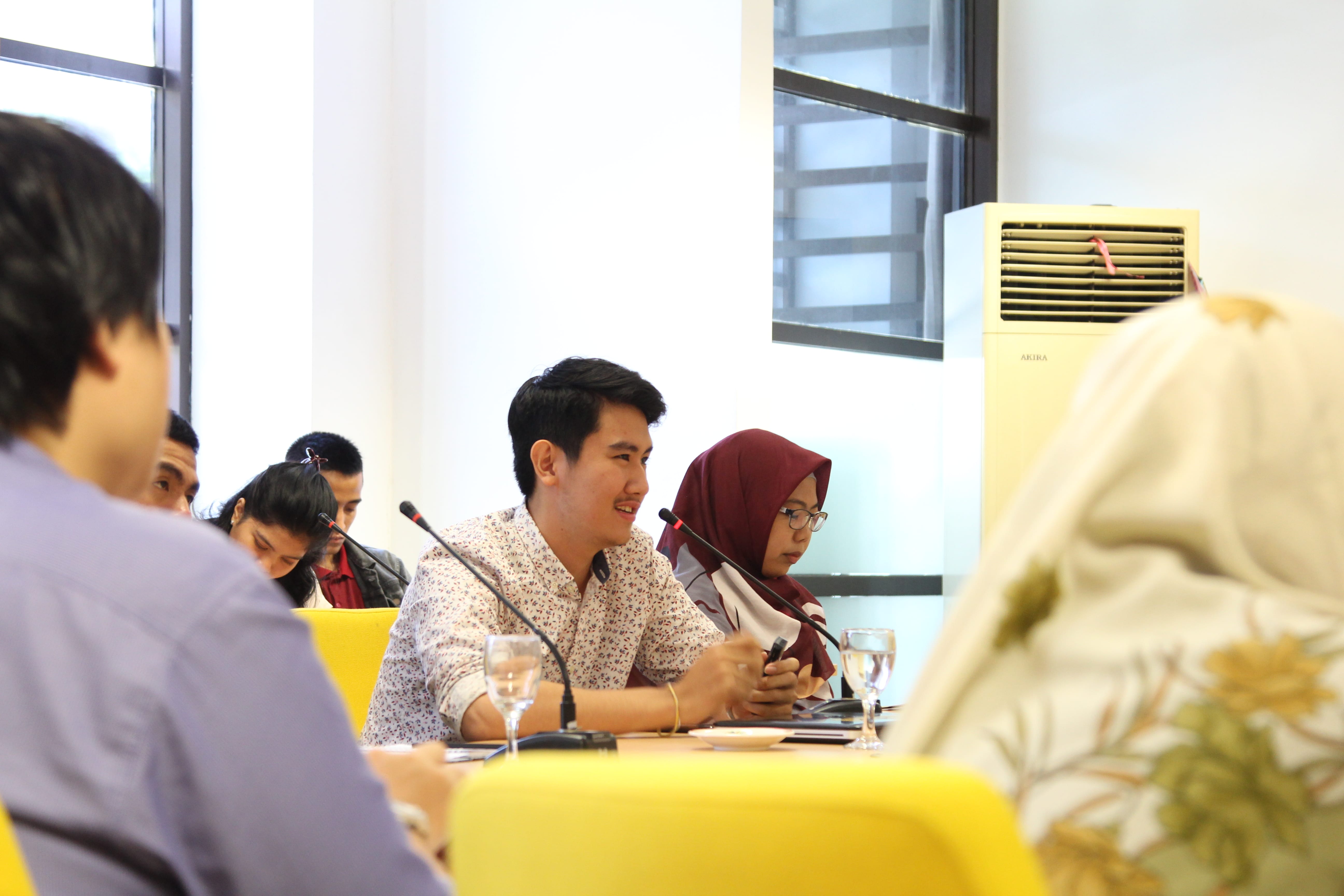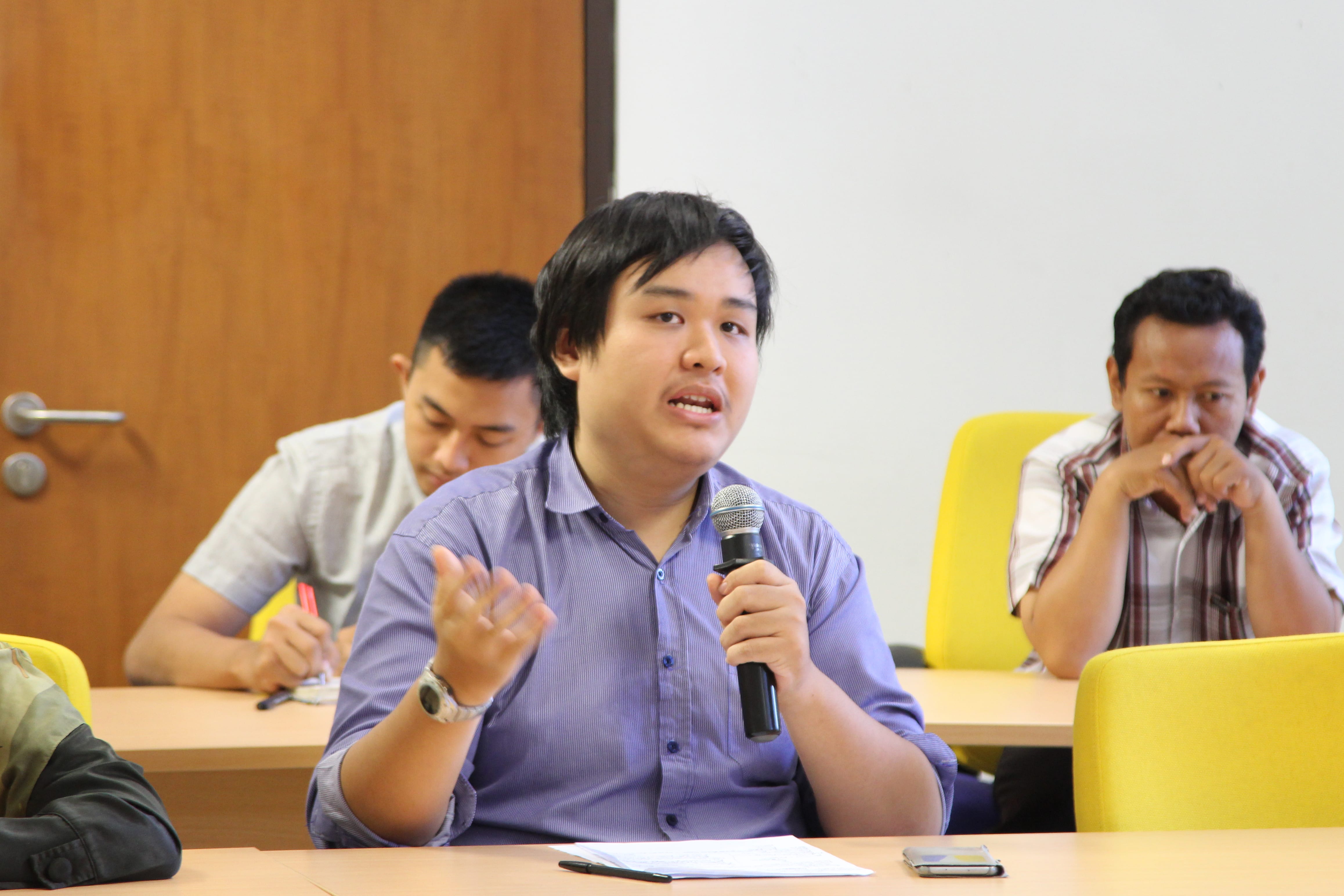Rilis Pers #1 Eskalasi Konflik Amerika Serikat dan Iran : Kemungkinan Perang Dunia ke-III?
Selasa (14/1/2020), Institute of International Studies, Departemen Ilmu Hubungan Internasional, Universitas Gadjah Mada (IIS UGM) menyelenggarakan konferensi pers sebagai respon atas isu eskalasi konflik diantara Amerika Serikat dan Iran. Terbunuhnya Mayor Jenderal Qasem Soleimani oleh serangan pesawat nirawak Amerika Serikat menjadi pemicu eskalasi tensi diantara Amerika Serikat dan Iran. Hal ini menimbulkan kekhawatiran akan terjadinya perang antara kedua negara, yang dapat memicu Perang Dunia III. Untuk menganalisa kemungkinan terjadinya Perang, ada beberapa hal yang harus dipertimbangkan. Dalam kesempatan ini, IIS UGM menghadirkan Dr. Nur Rachmat Yuliantoro, Kepala Departemen Ilmu Hubungan Internasional Universitas Gadjah Mada dan Yunizar Adiputera, MA., Dosen Departemen Ilmu Hubungan Internasional Universitas Gadjah Mada.
Amerika Serikat memiliki sejarah keterlibatan yang panjang di kawasan Timur Tengah karena eksistensi Israel sebagai sekutu dekatnya. Bukanlah rahasia umum bahwa Amerika adalah musuh dari sebagian besar negara Timur Tengah. Di sisi lain, Iran merupakan salah satu seteru AS yang secara agresif terus mengembangkan kekuatannya, sehingga AS akan berusaha untuk melemahkan dan menghambat perkembangan Iran. Pembunuhan Soleimani dapat diinterpretasikan sebagai salah satu bentuk dari upaya tersebut, dengan justifikasi bahwa Soleimani memiliki niatan untuk menyerang beberapa target strategis di Amerika.
Namun pada kenyataannya, justifikasi yang disebutkan oleh pihak Gedung Putih tersebut masih belum bisa dibuktikan keabsahannya. Sebaliknya, muncul pandangan yang menyatakan bahwa Donald Trump melakukan serangan tersebut adalah sebuah pengalihan isu untuk mengurangi beban dalam negeri AS yang sedang marak dengan isu pemakzulan Trump, sekaligus sebagai upaya mendongkrak popularitas Trump pada pemilu yang akan datang. Siasat ini pernah diterapkan oleh mantan Presiden AS, George H. Bush Sr. yang mengintervensi dalam invasi Irak ke Kuwait. Namun siasat ini dapat berbalik merugikan Trump apabila lawan politik Trump menggunakan isu ekonomi sebagai pertimbangan dalam inisiasi perang, dimana kondisi perekonomian AS sebenarnya tidak cukup kuat untuk mendukung ekonomi perang apabila AS berperan dengan Iran.
Apakah Serangan Amerika Serikat yang menewaskan Mayjen Qasem Soleimani dapat dibenarkan menurut Hukum Internasional?
“Sulit dibenarkan secara hukum internasional, logika yang dibangun selama ini hanya bahwa iya (Jenderal Qasem Soleimani) adalah orang jahat atau teroris, sementara dalam hukum internasional serangan hanya bisa dilakukan atas dasar pembelaan diri (self-defense) atau jika ada ancaman yang mendesak (imminent)”
-Yunizar Adiputera, M.A, Dosen Departemen Ilmu Hubungan Internasional, Universitas Gadjah Mada.-
Selain problematika urusan domestik AS, terdapat problematika keabsahan serangan yang dilakukan terhadap Soleimani apabila ditinjau dengan hukum humaniter internasional. Sebuah serangan hanya dapat dibenarkan sebagai tindakan bela diri (self-defence) atau respon atas sebuah ancaman yang mendesak (imminent threat). Trump mengatakan bahwa serangan ini adalah bentuk self-defence AS terhadap rencana dan aksi terorisme yang dimotori oleh Soleimani. Sulit untuk menjustifikasi keabsahan serangan atas Soleimani karena hingga saat ini belum ada bukti berarti akan ancaman yang dibawa oleh Qasem Soleimani. Selain itu, terlepas dari problematika legal atau tidaknya serangan tersebut, serangan yang menewaskan Soleimani juga merupakan sebuah serangan yang tidak bijak dan tidak masuk akal, karena dapat menciptakan krisis dan eskalasi konflik di kawasan Timur Tengah.
Apakah konflik diantara kedua negara akan mengalami eskalasi sehingga dapat memicu Perang Dunia III?
“Amerika Serikat dan Iran sama-sama memiliki kekuatan nuklir, dan apabila keduanya berperang, hanya akan menciptakan kerusakan skala besar dan prospek terjadinya MAD (mutually assured destruction)”
-Dr. Nur Rachmat Yuliantoro, Kepala Departemen Hubungan Internasional Universitas Gadjah Mada –
Untuk saat ini, kemungkinan terjadinya Perang Dunia III dinilai kedua narasumber sebagai sebuah kemungkinan yang tidak realistis karena beberapa faktor. Pertama, situasi politik yang sangatlah berbeda dengan situasi sebelum Perang Dunia I dan II, dimana mayoritas negara menghindari perang terbuka dan memilih diplomasi. Kedua, faktor domestik dari kedua negara yang berkonflik. Disatu sisi AS dipengaruhi oleh dukungan publik yang lemah atas perang dan juga ekonomi yang tidak siap untuk perang skala besar, dan disisi lain Iran juga memiliki kekuatan militer yang jauh lebih inferior dibandingkan AS sehingga pilihan untuk melakukan perang terbuka dapat mengarah kepada blunder strategis. Ketiga, prospek mutually assured destruction yang akan terjadi karena baik AS dan Iran sama sama memiliki senjata nuklir, yang apabila digunakan hanya akan menimbulkan kerusakan skala besar dan merugikan kedua negara.
Apa yang bisa dilakukan oleh Indonesia?
Pada akhir sesi rilis, kedua narasumber mengingatkan akan signifikansi diplomasi di era modern. DIHI dan IIS UGM akan selalu mengutamakan jalur diplomasi dan tidak akan mempromosikan peperangan sebagai solusi. Meskipun banyak pihak menilai pamor diplomasi menjadi kurang populer setelah beberapa fenomena seperti Brexit dan Trump yang lebih memilih menggunakan power Amerika Serikat dibanding jalur diplomasi, namun pada kenyataannya justru diplomasi menjadi lebih penting dibanding era sebelumnya. Pada kasus ini, Pemerintah Indonesia dapat menggunakan jalur diplomasi untuk mencegah konflik diantara Amerika Serikat dan Iran bereskalasi lebih jauh.
Penulis : Raditya Bomantara
Penyunting : Denise Michelle

